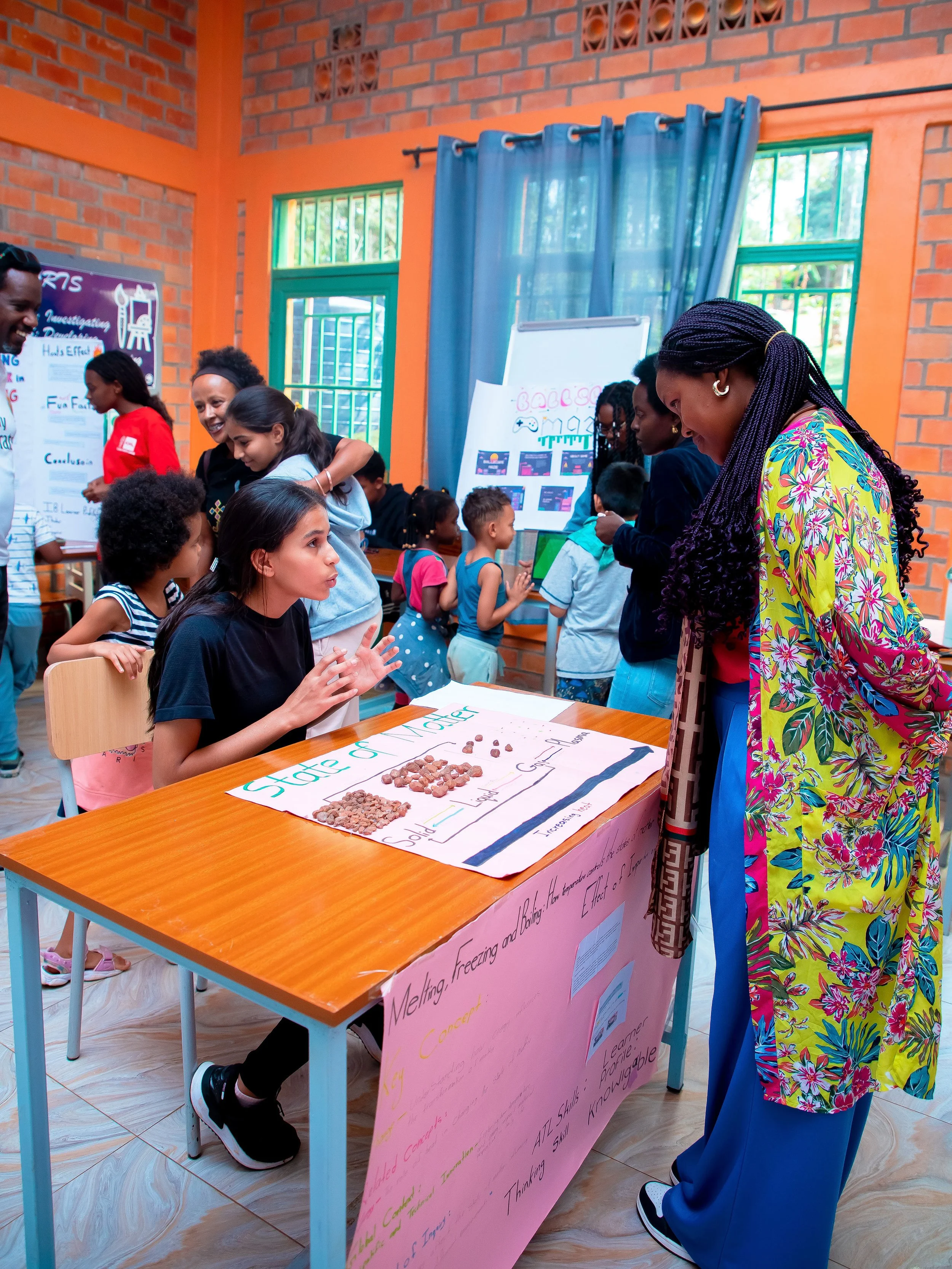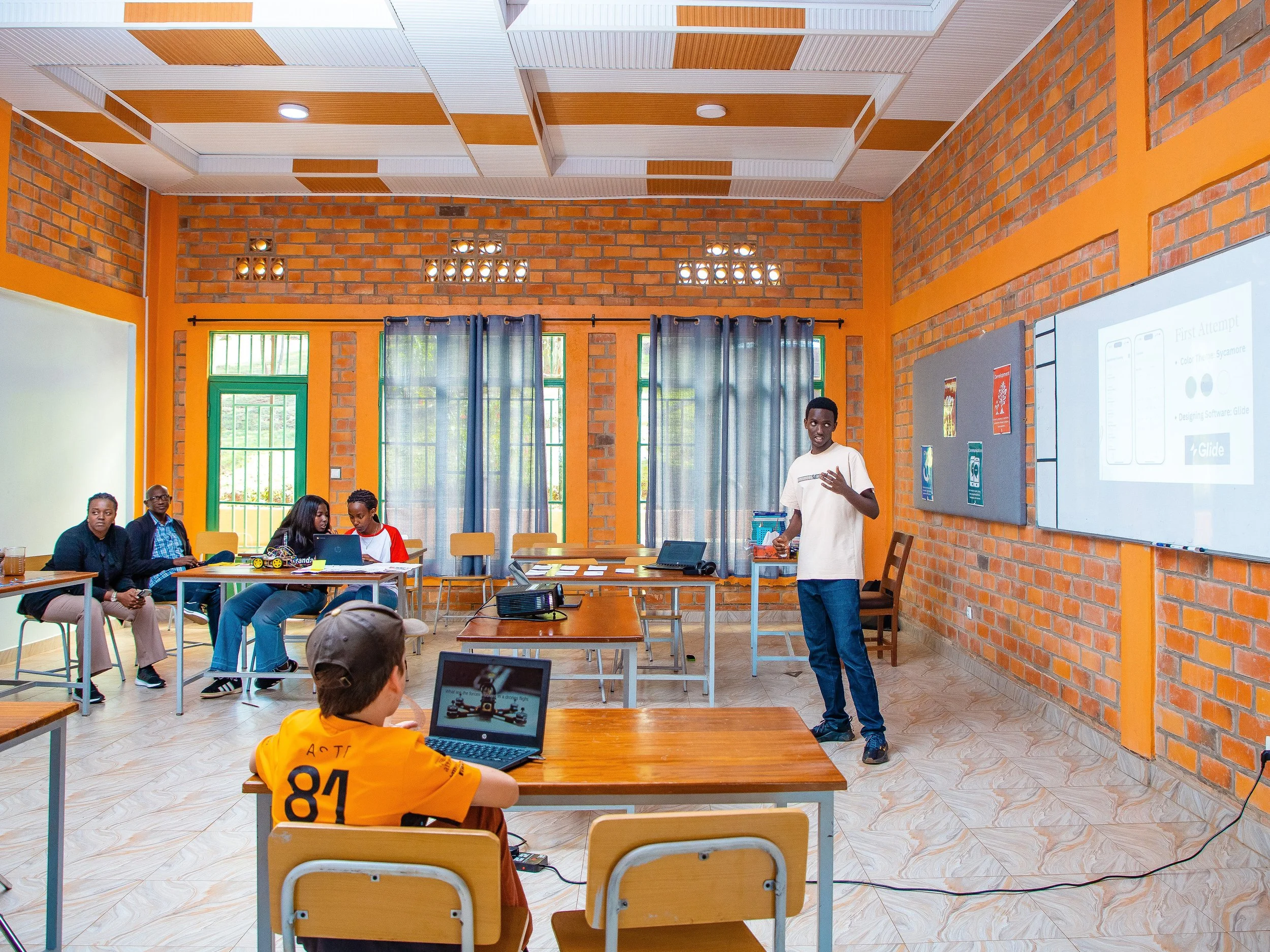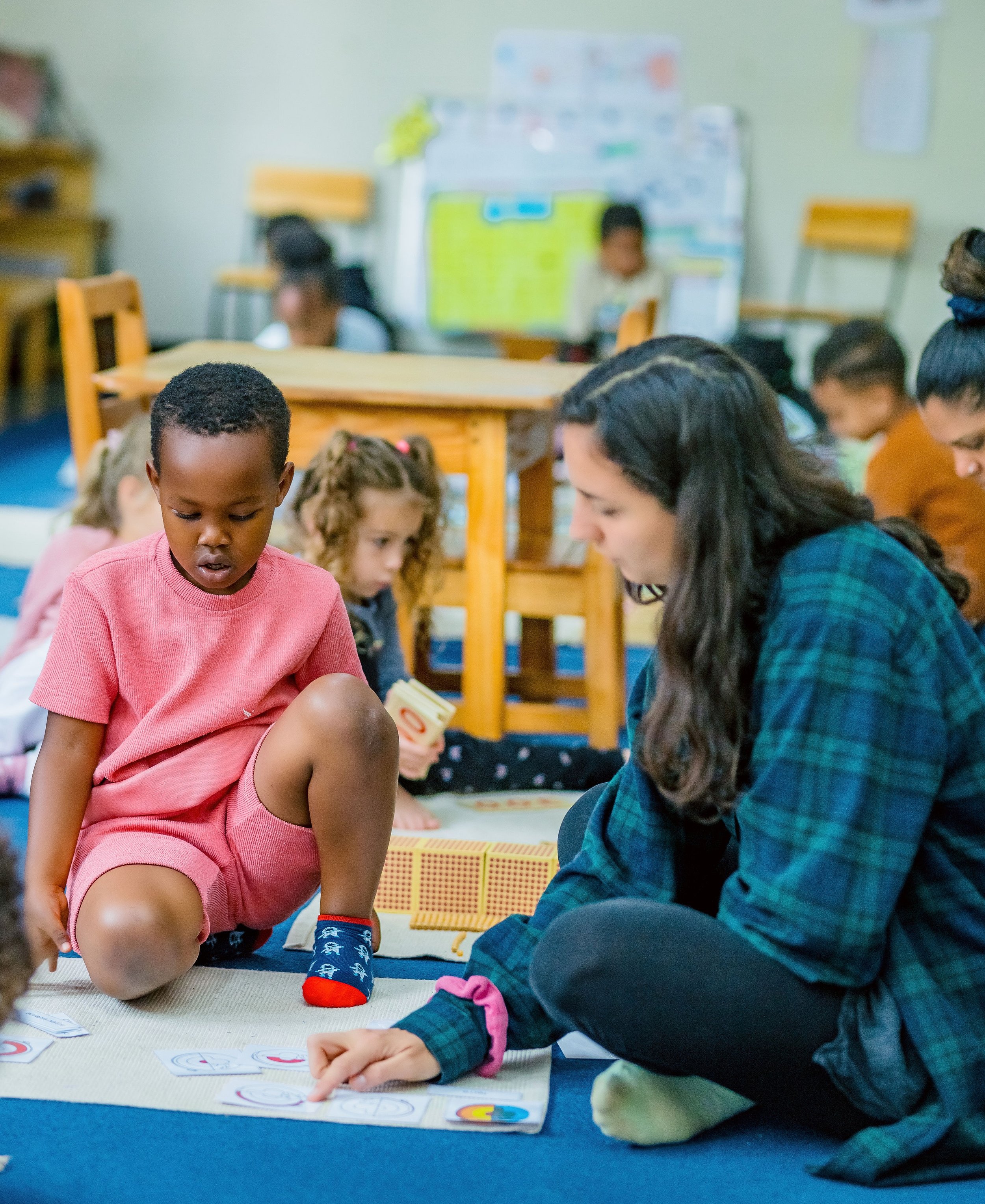
Elementary Program | Ages 6–12
Igniting a lifelong love of discovery.
A dynamic learning environment where children explore, create, and grow through hands-on projects and personalized learning.
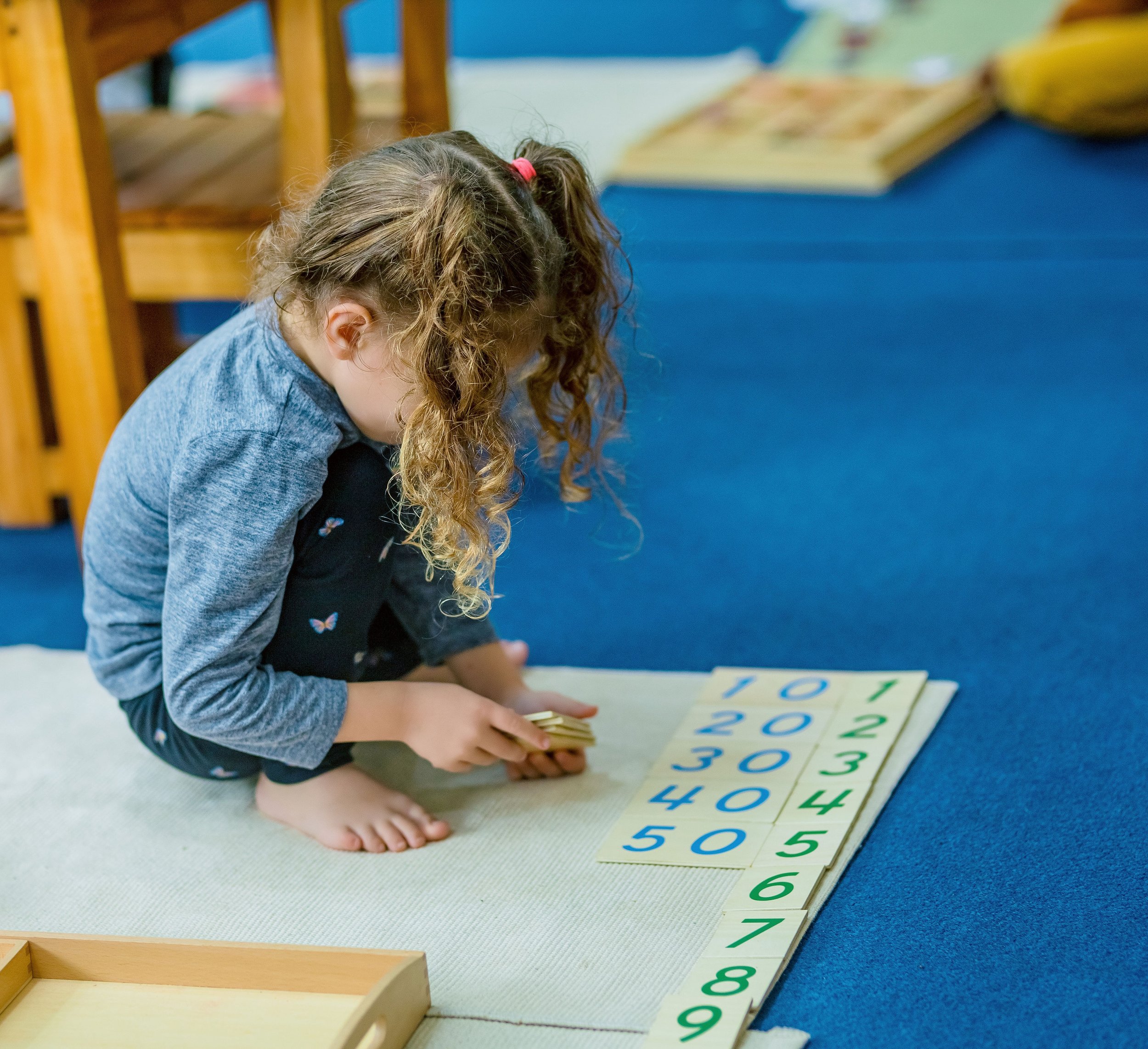
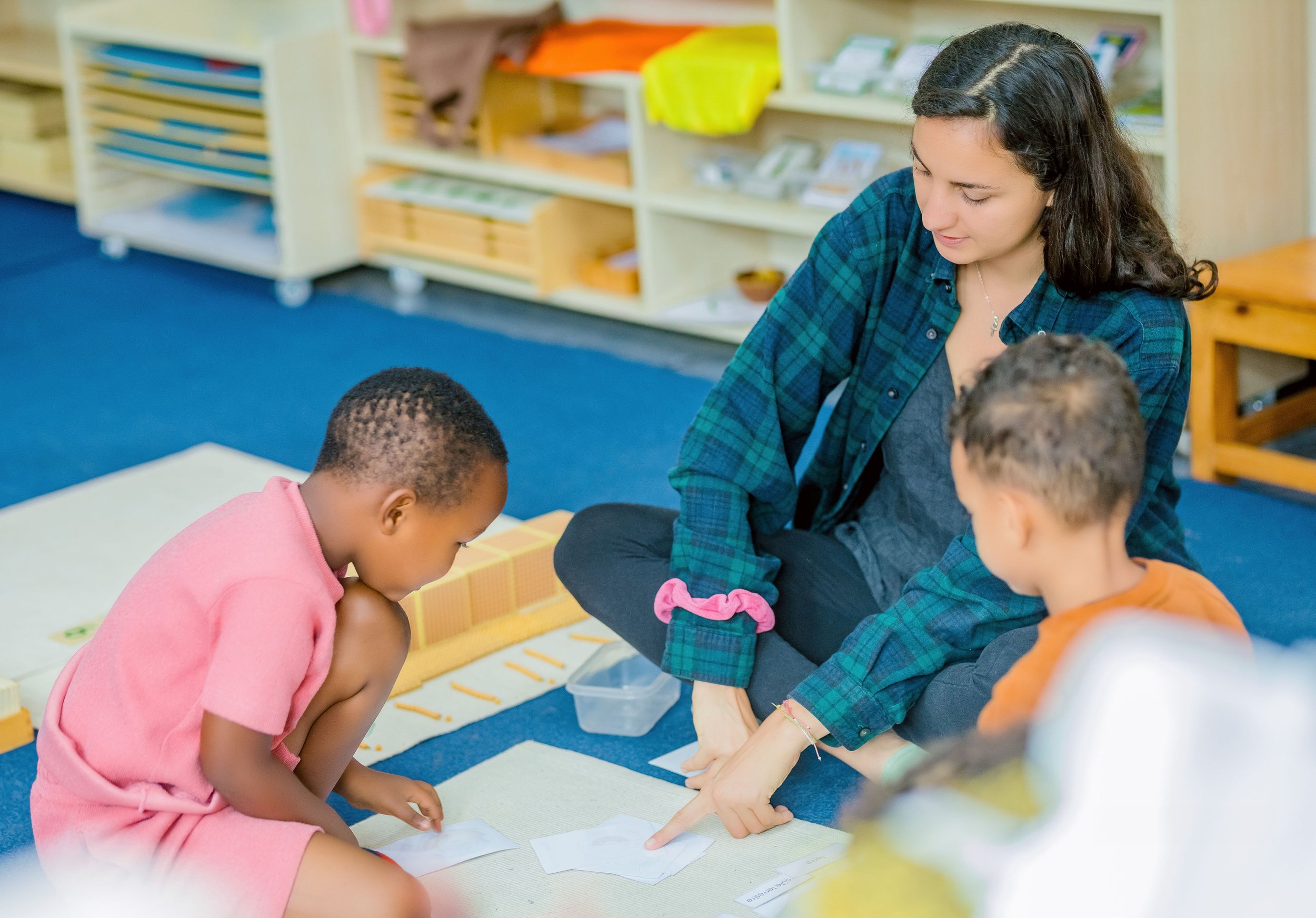
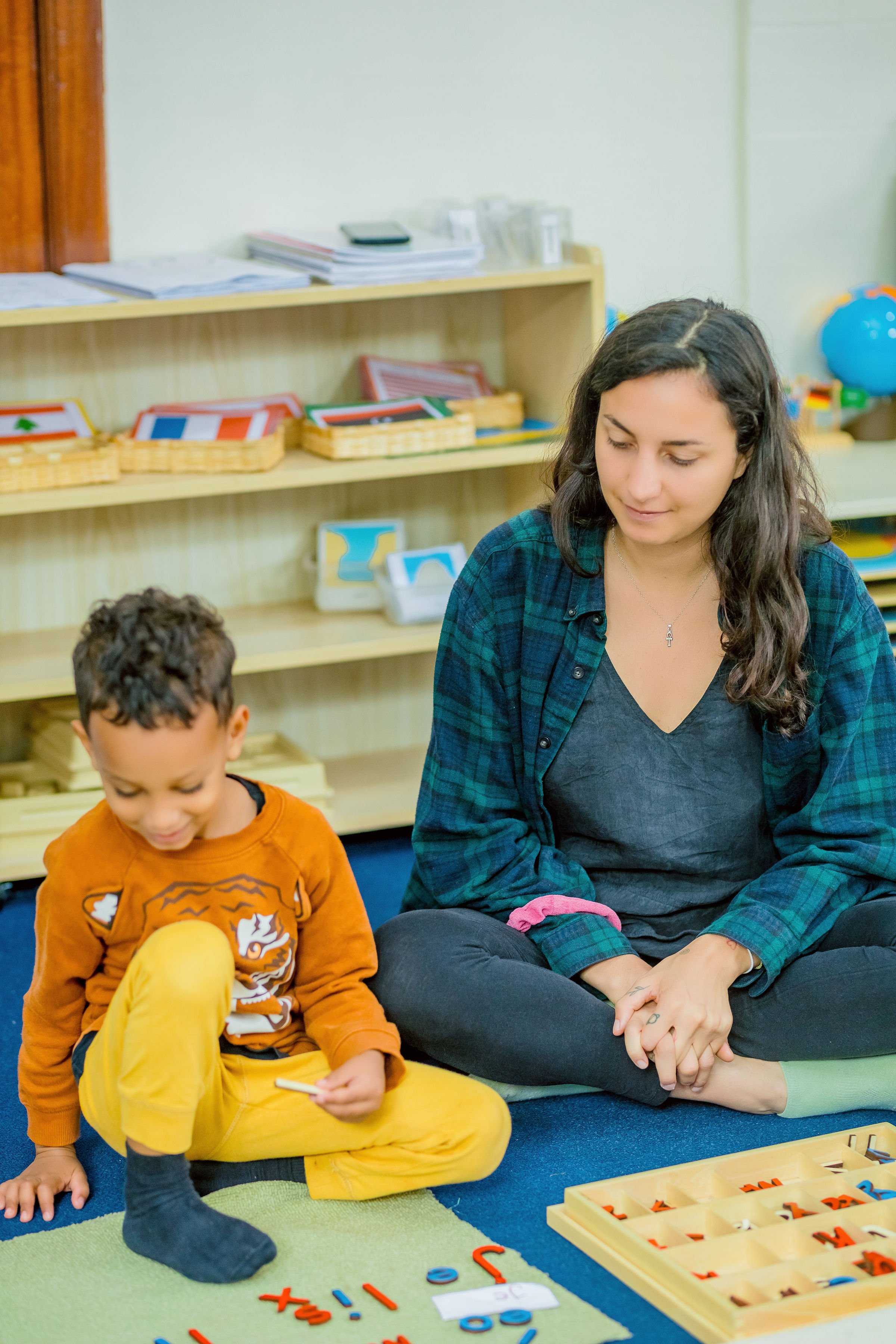
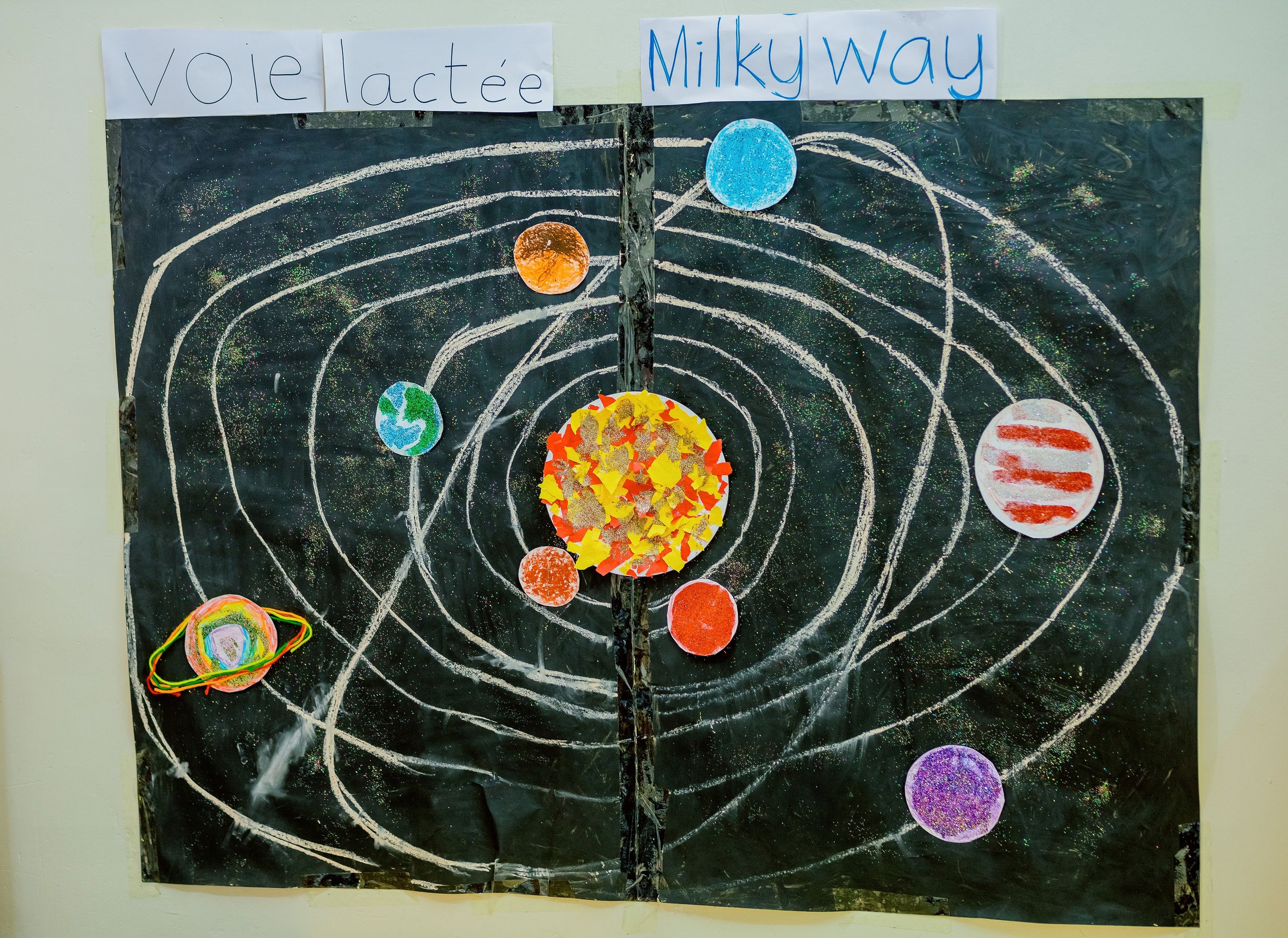
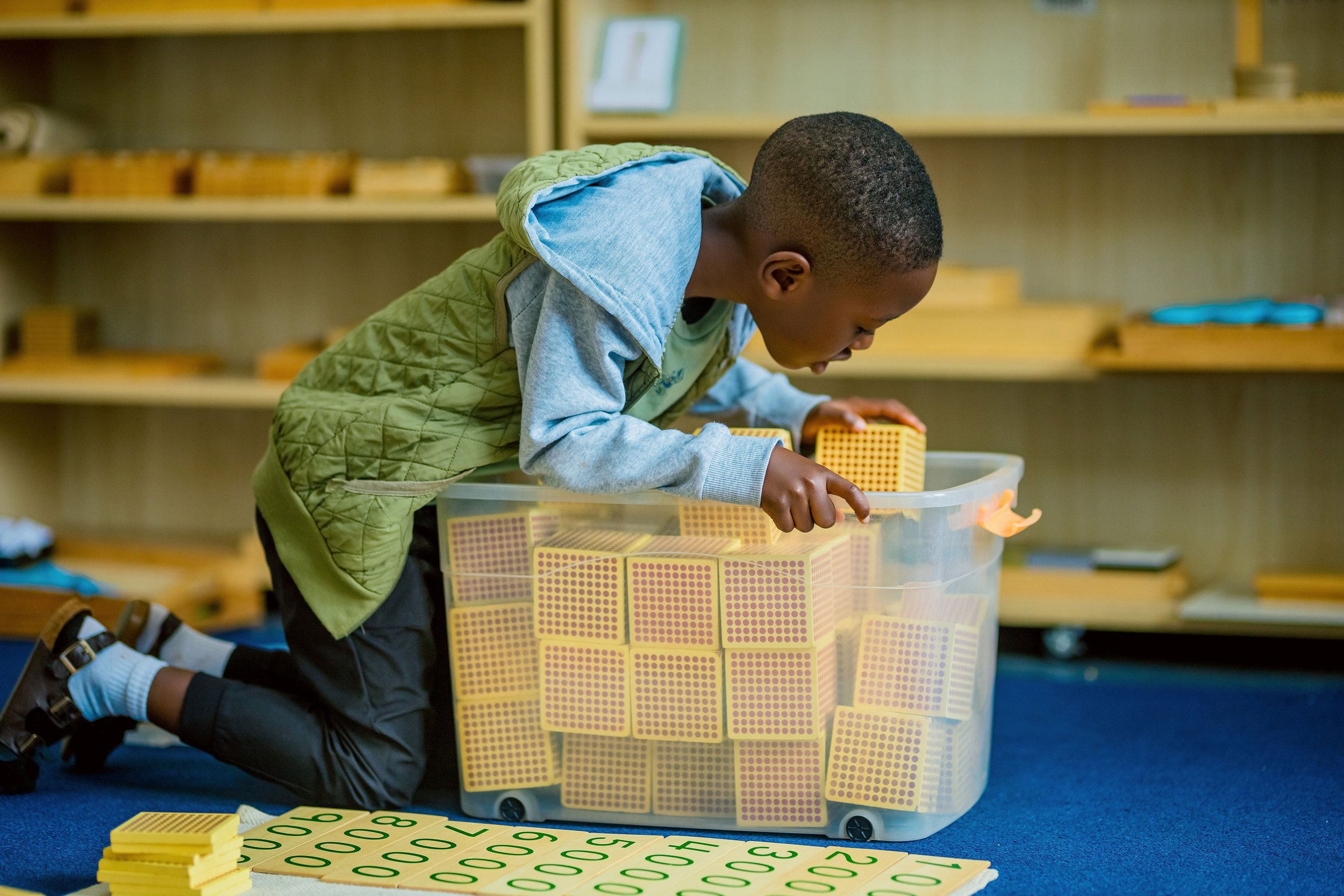
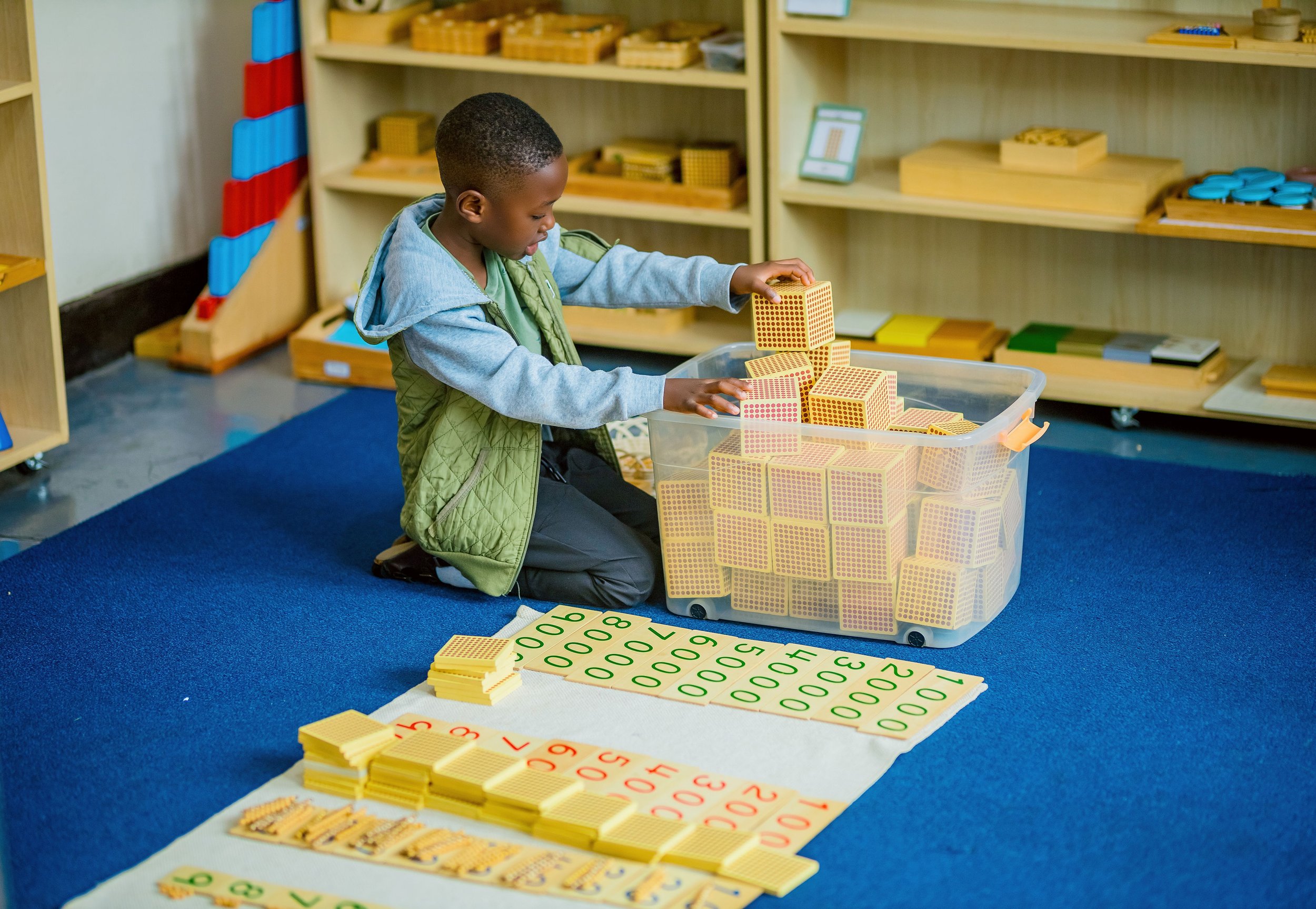
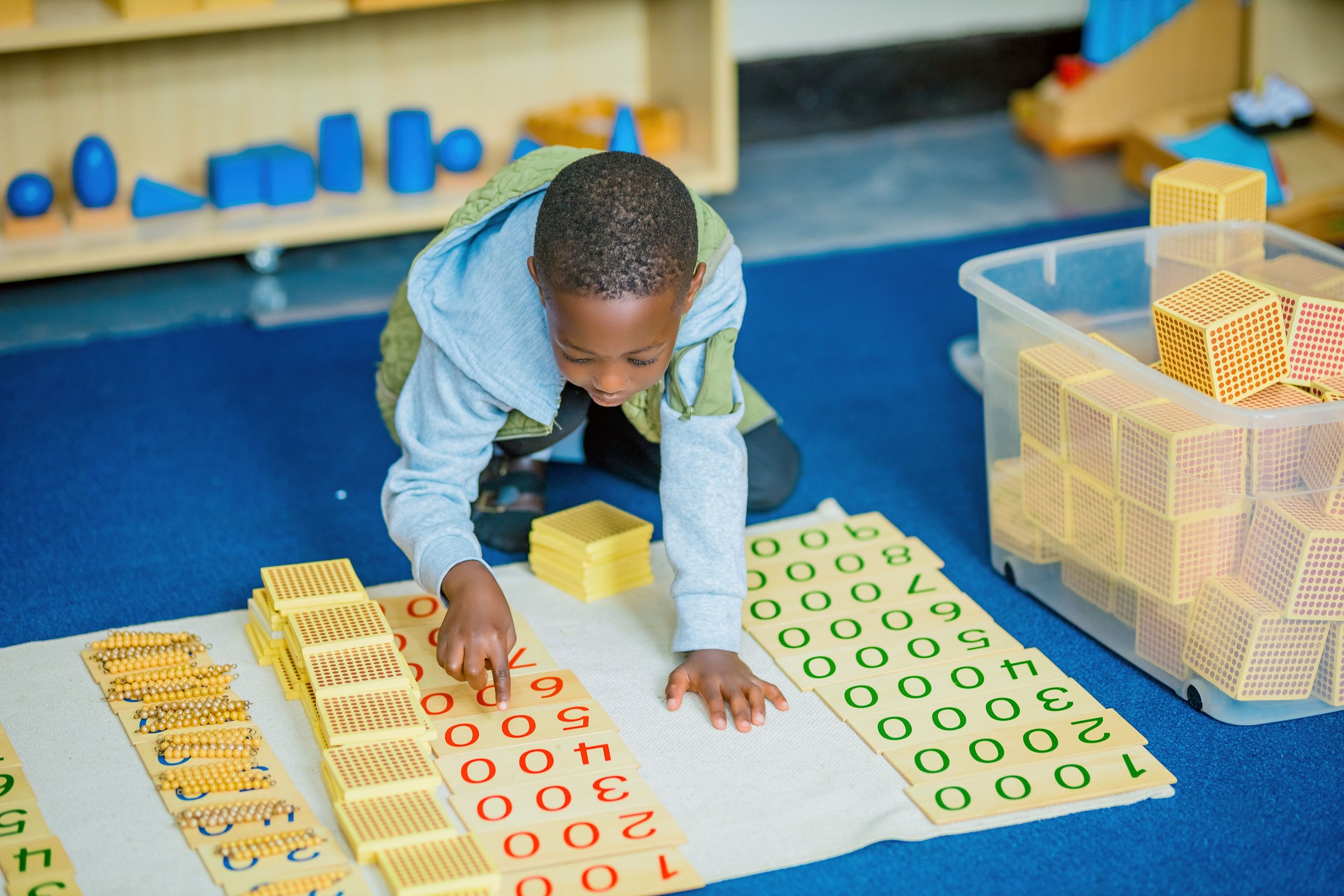
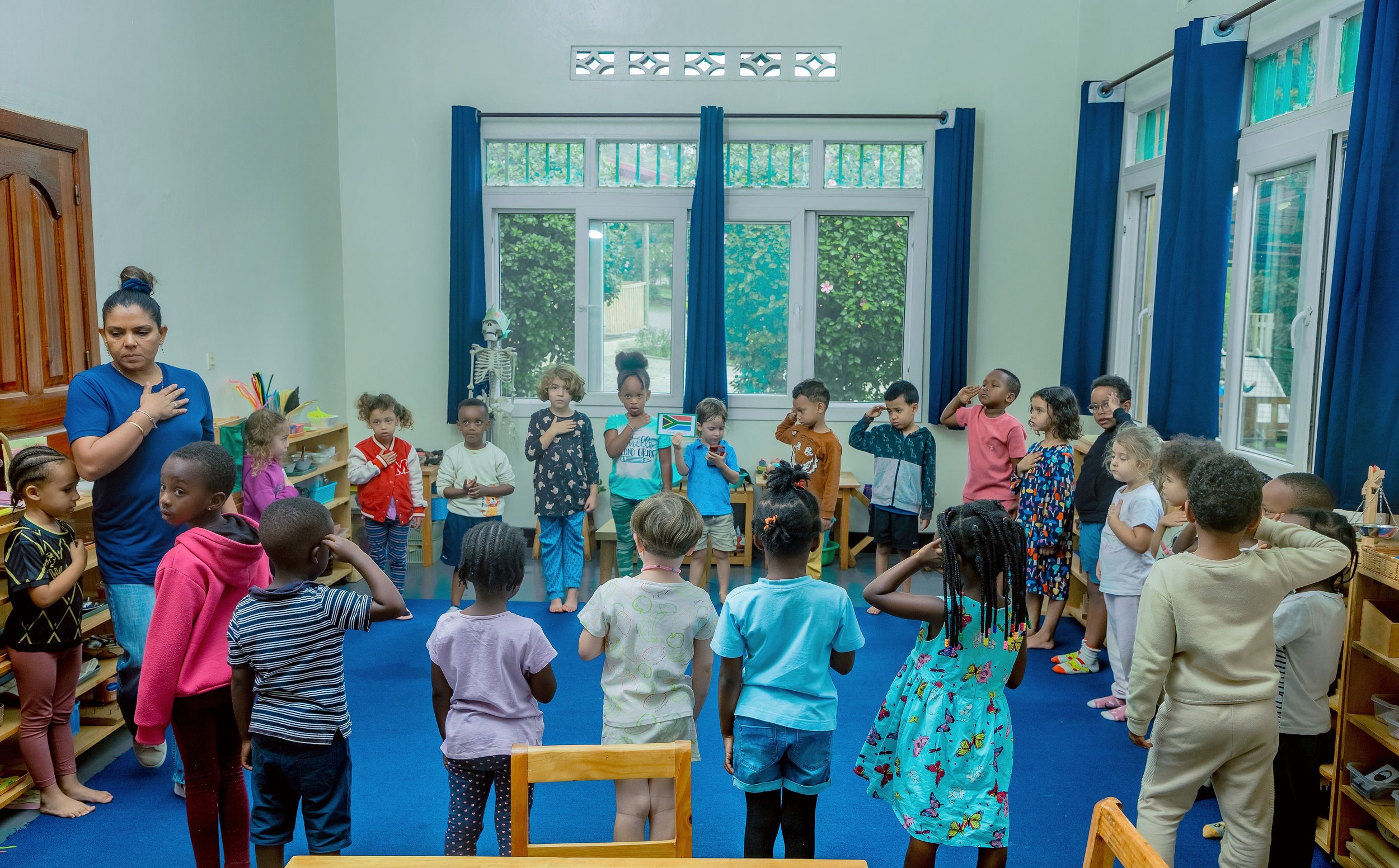
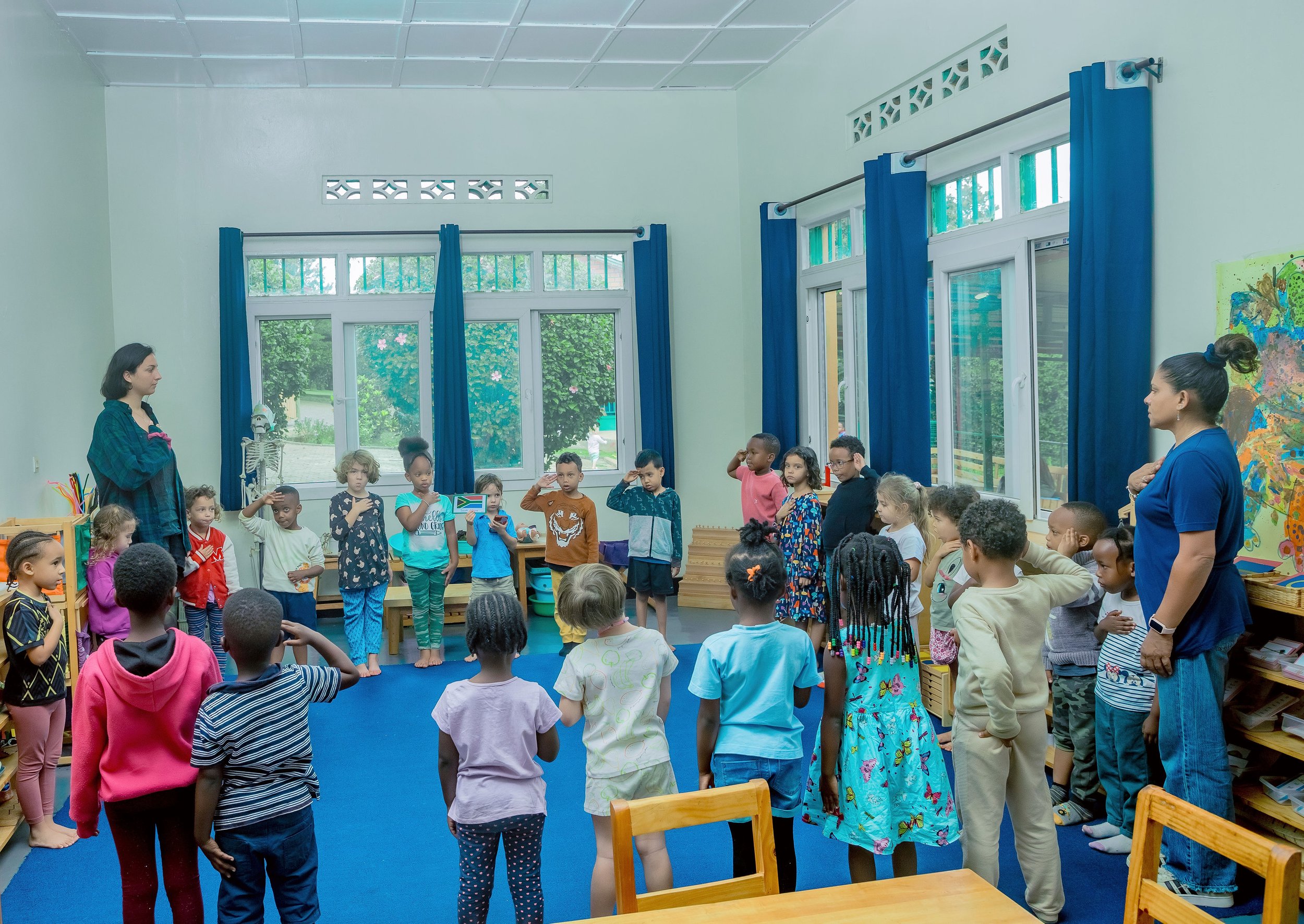
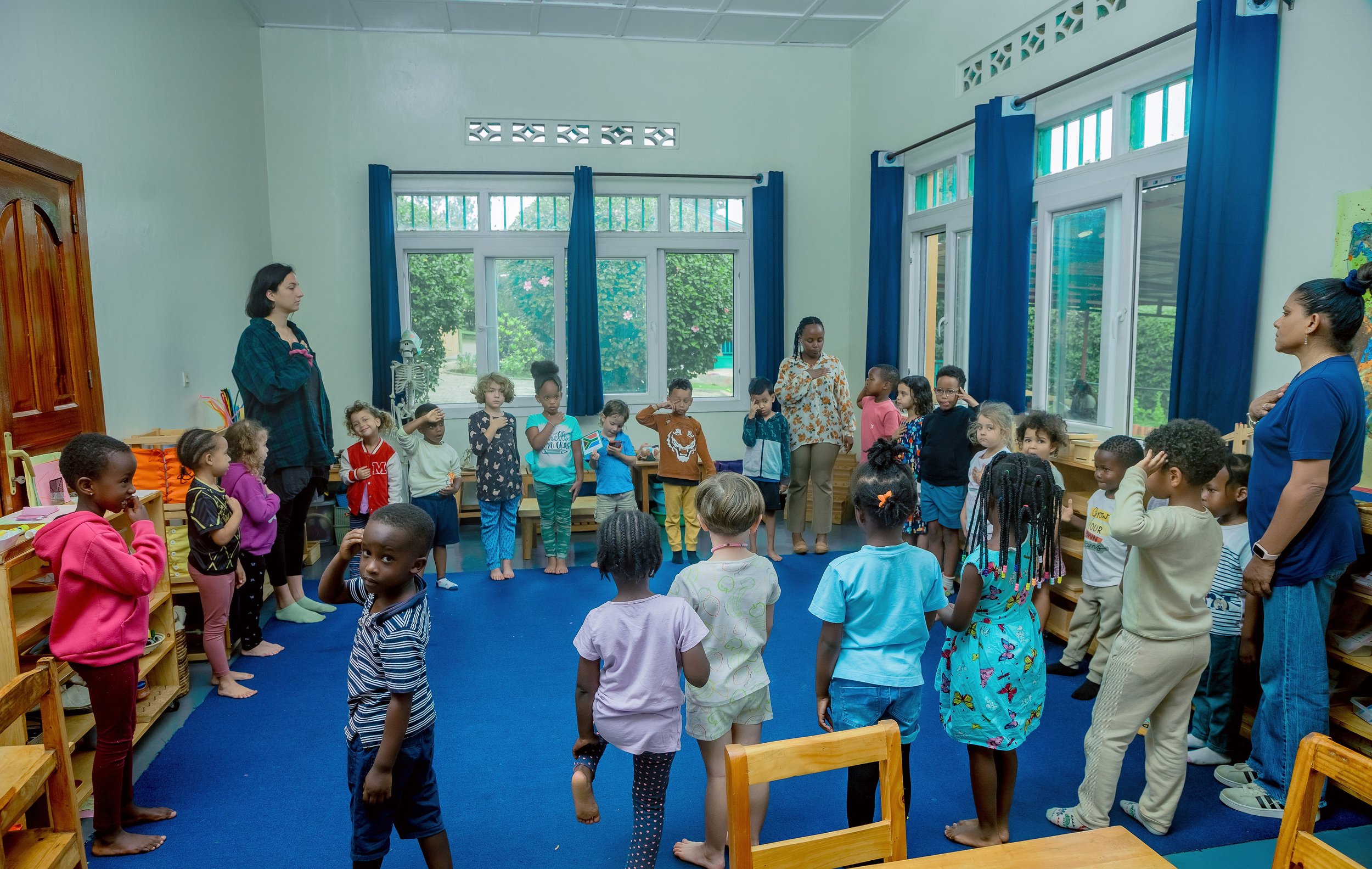
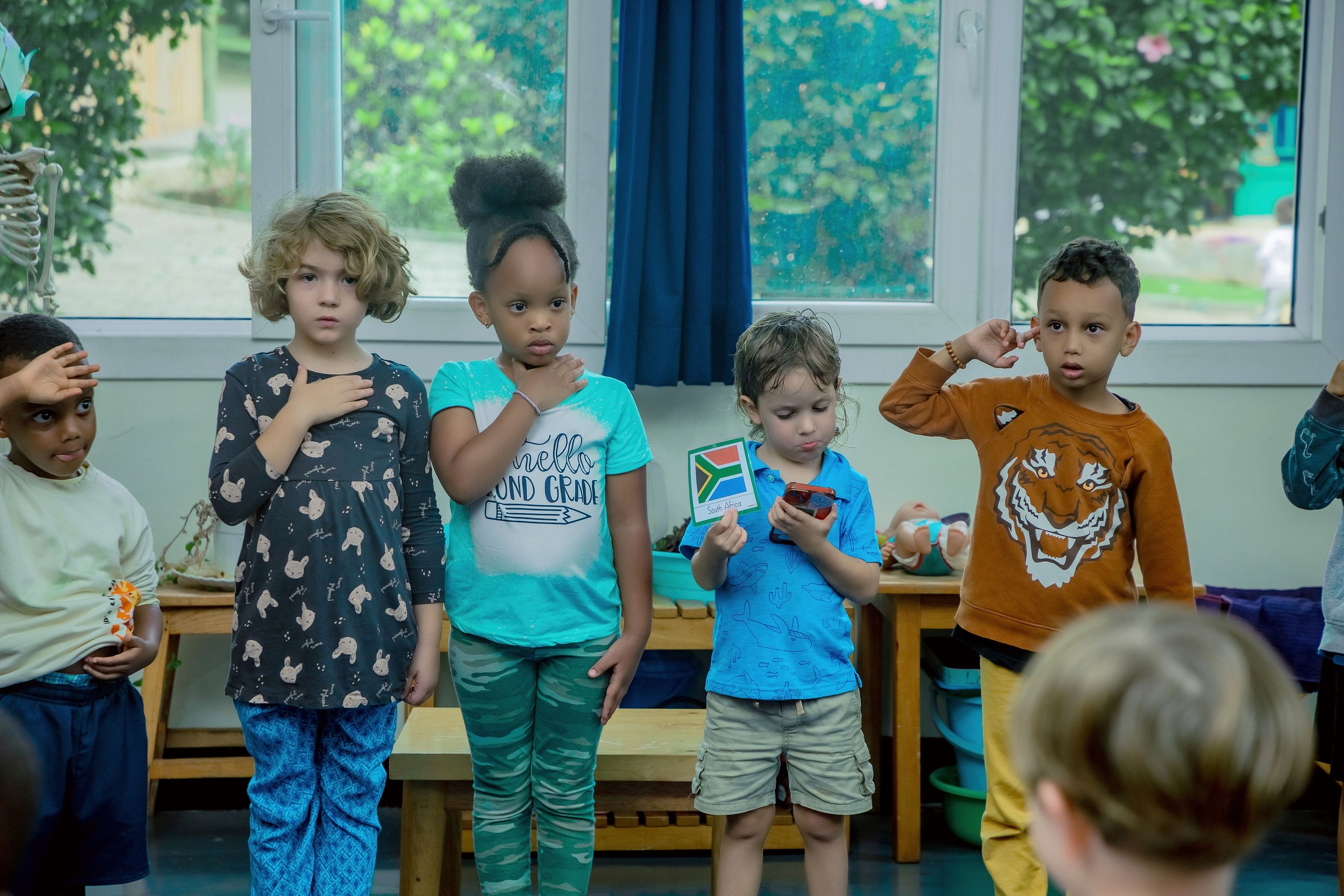
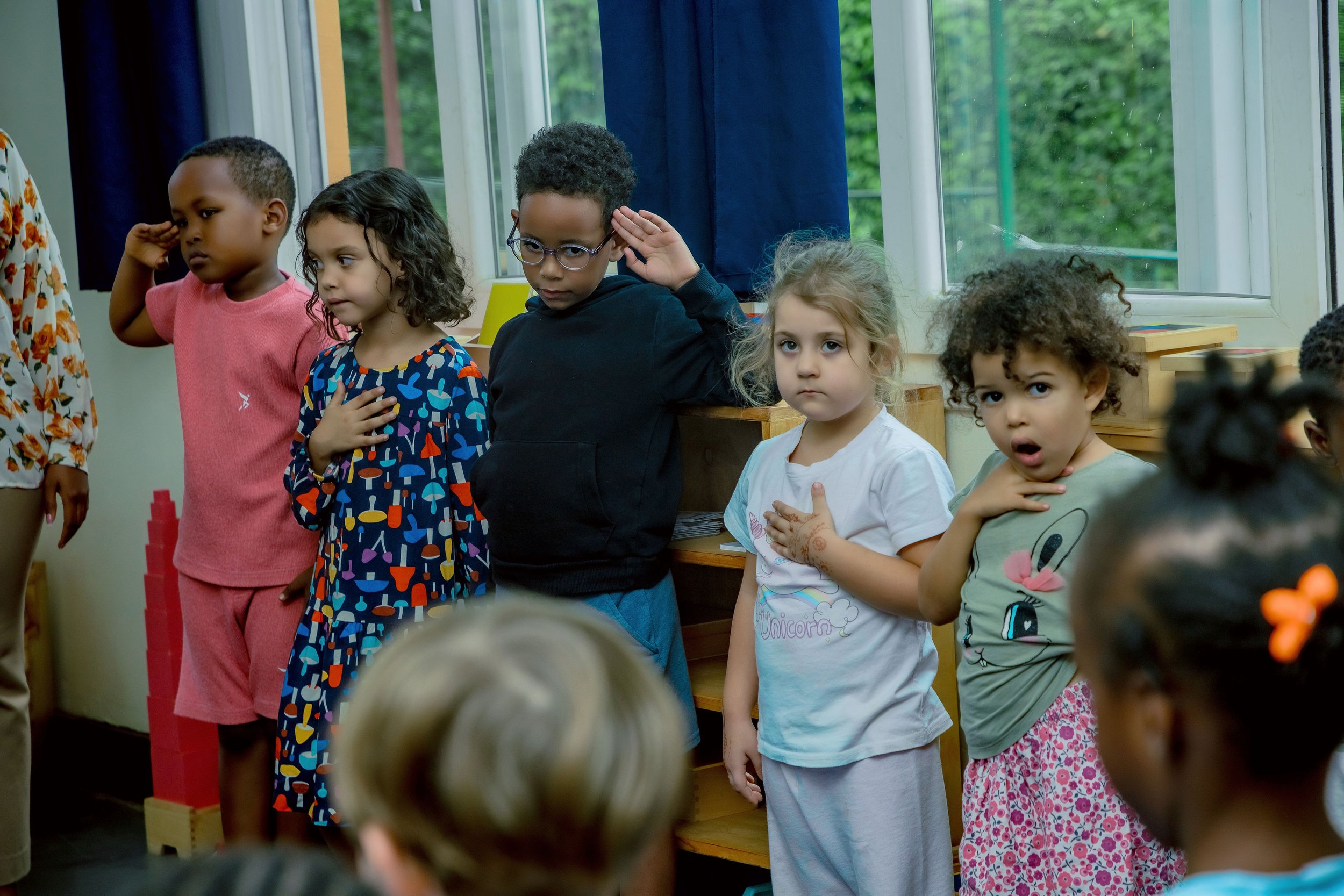
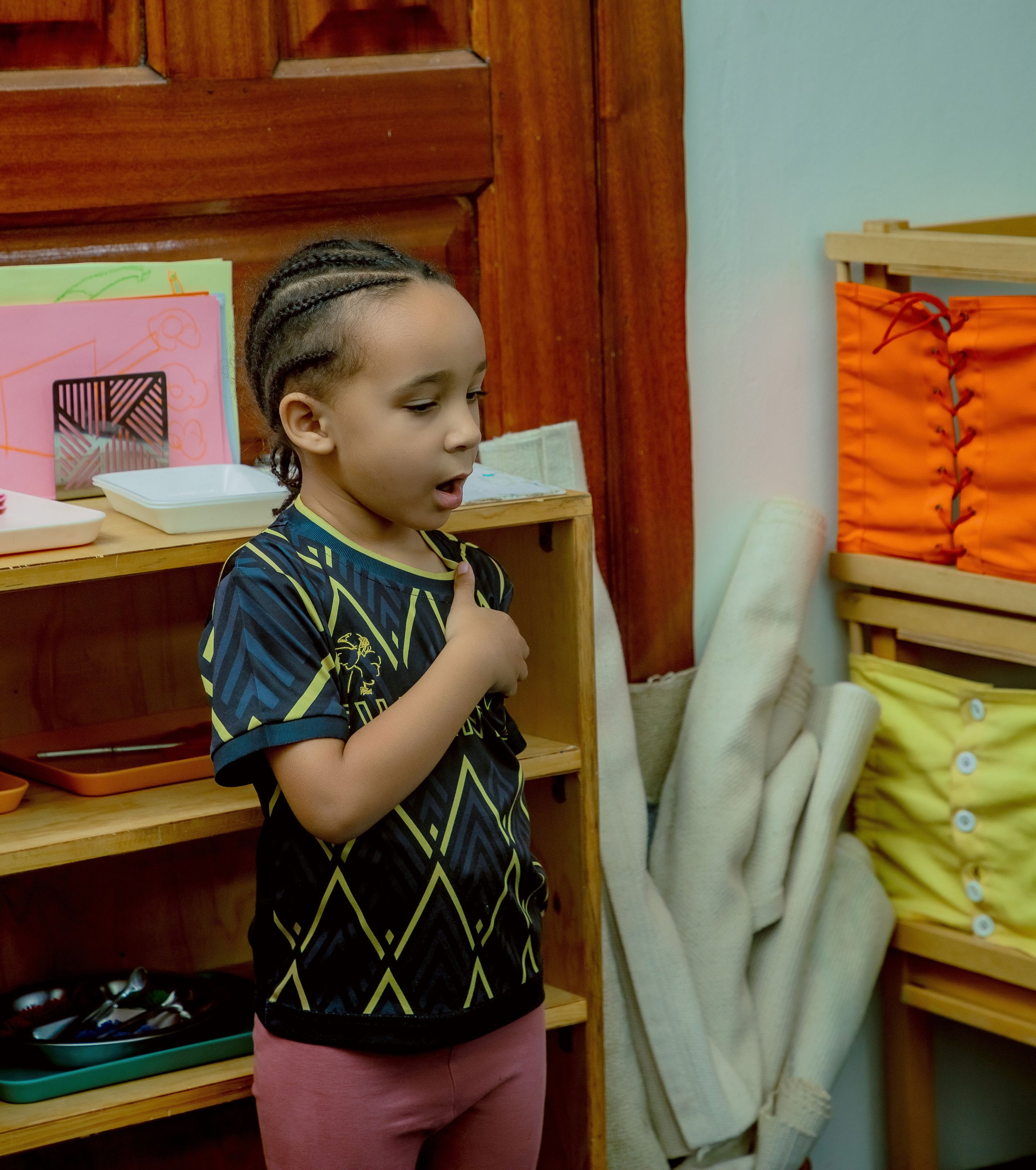
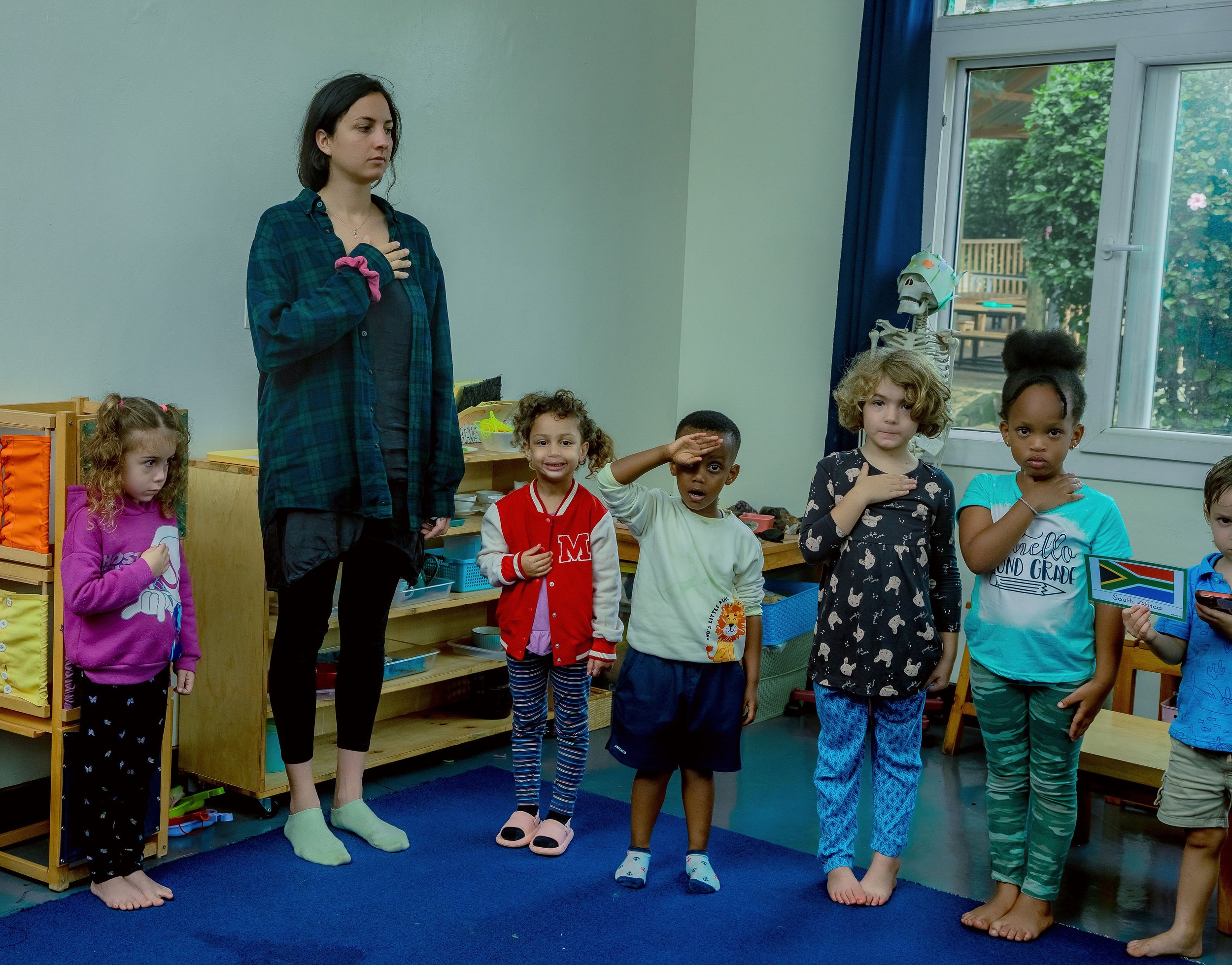
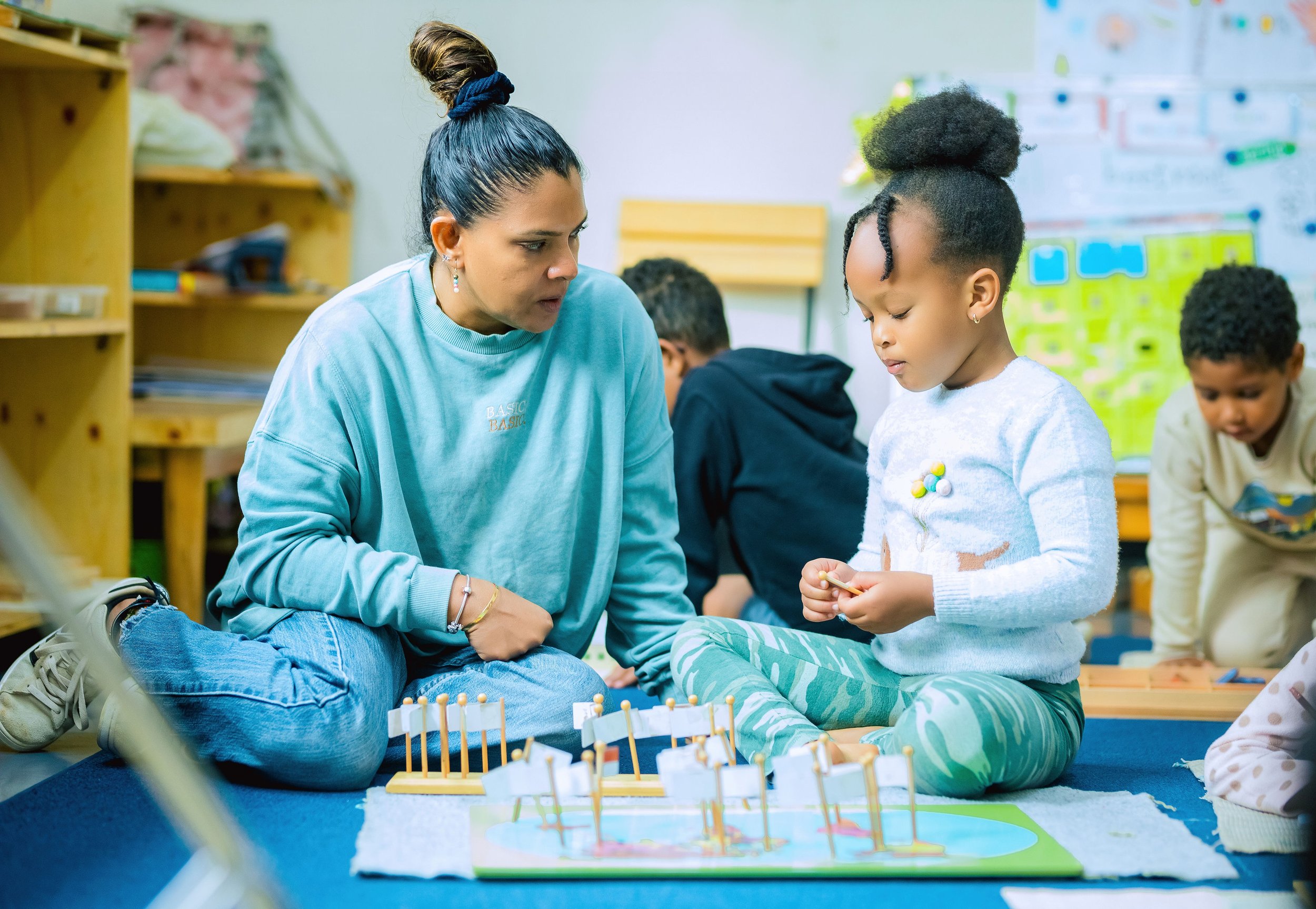
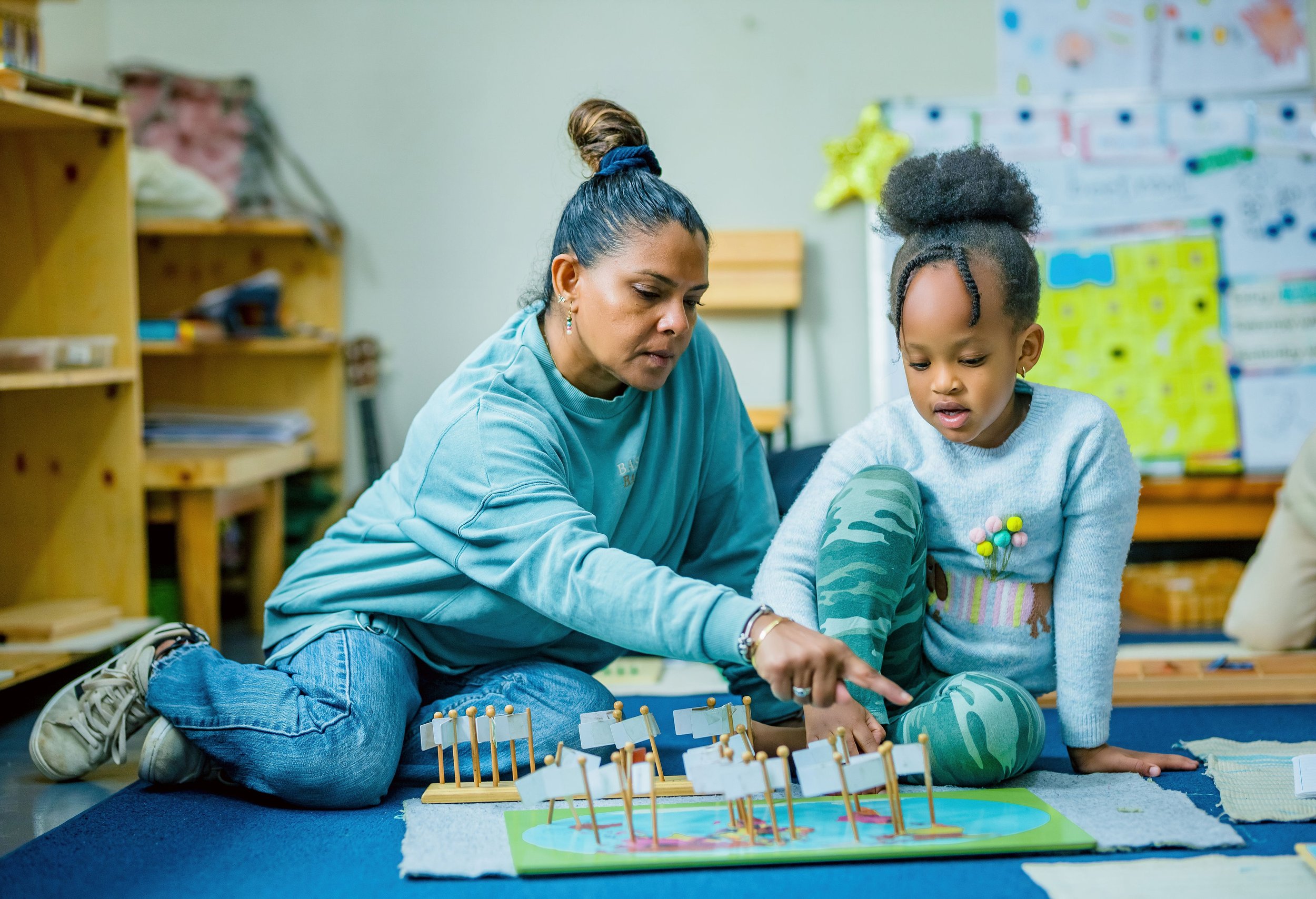
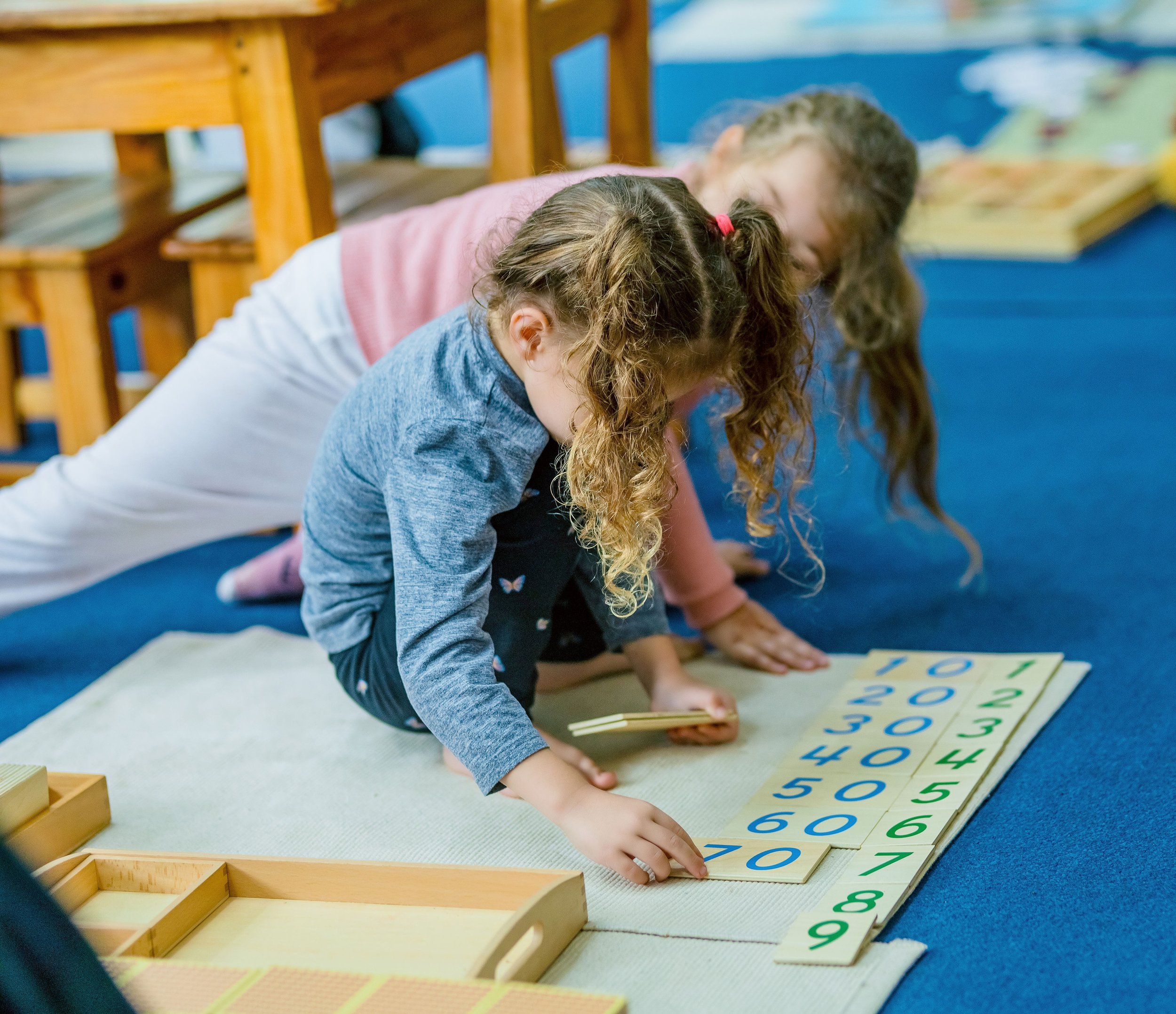
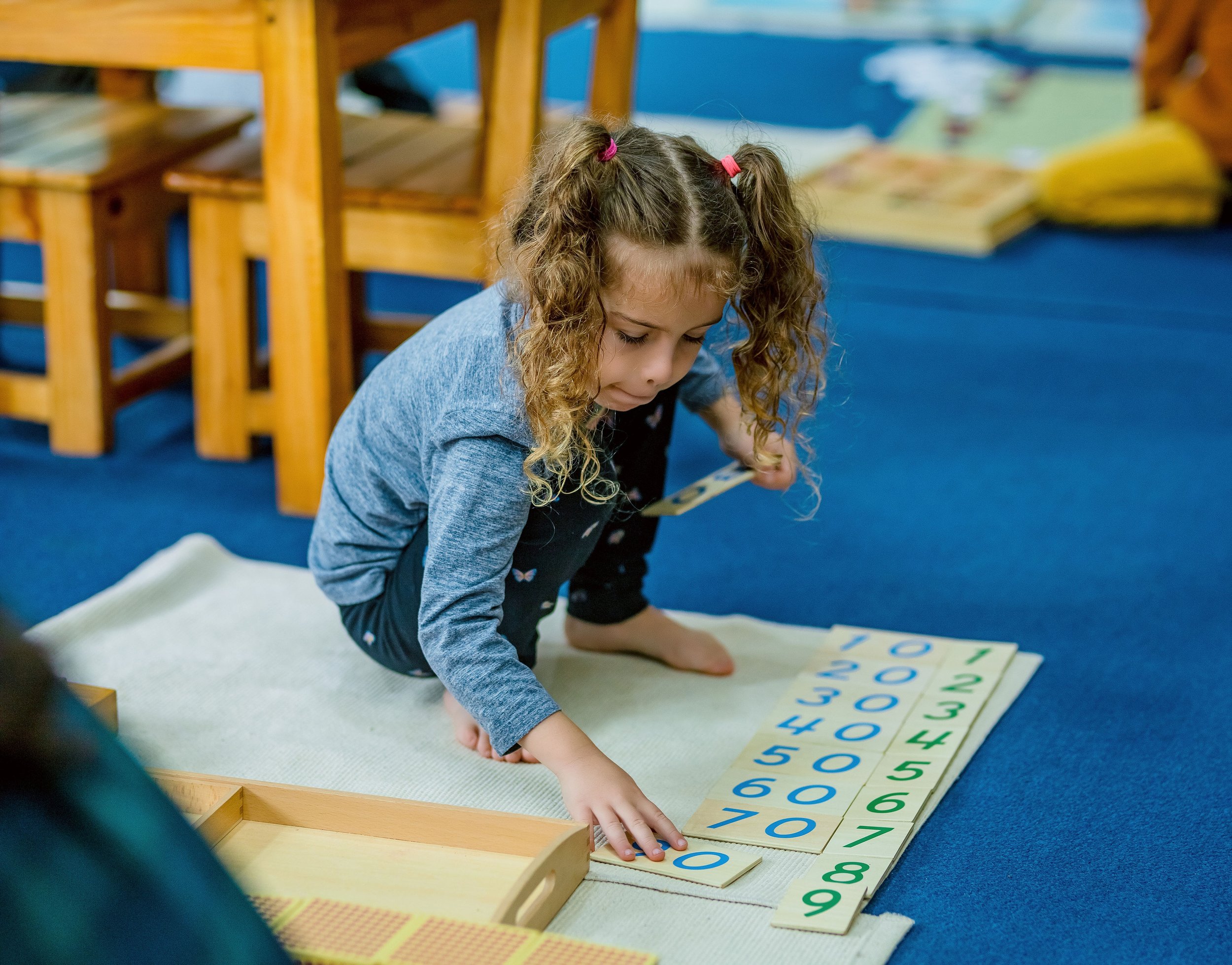
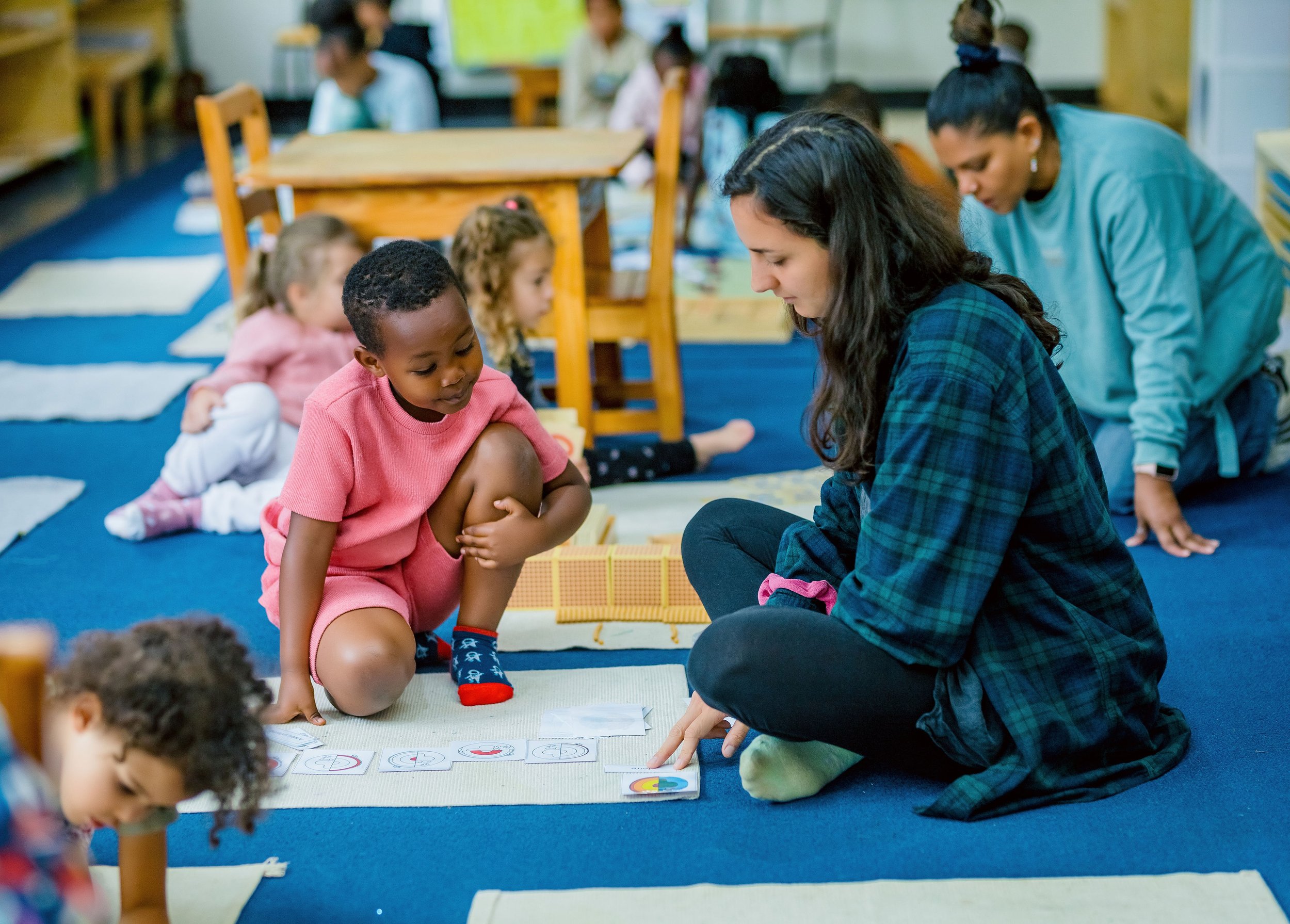

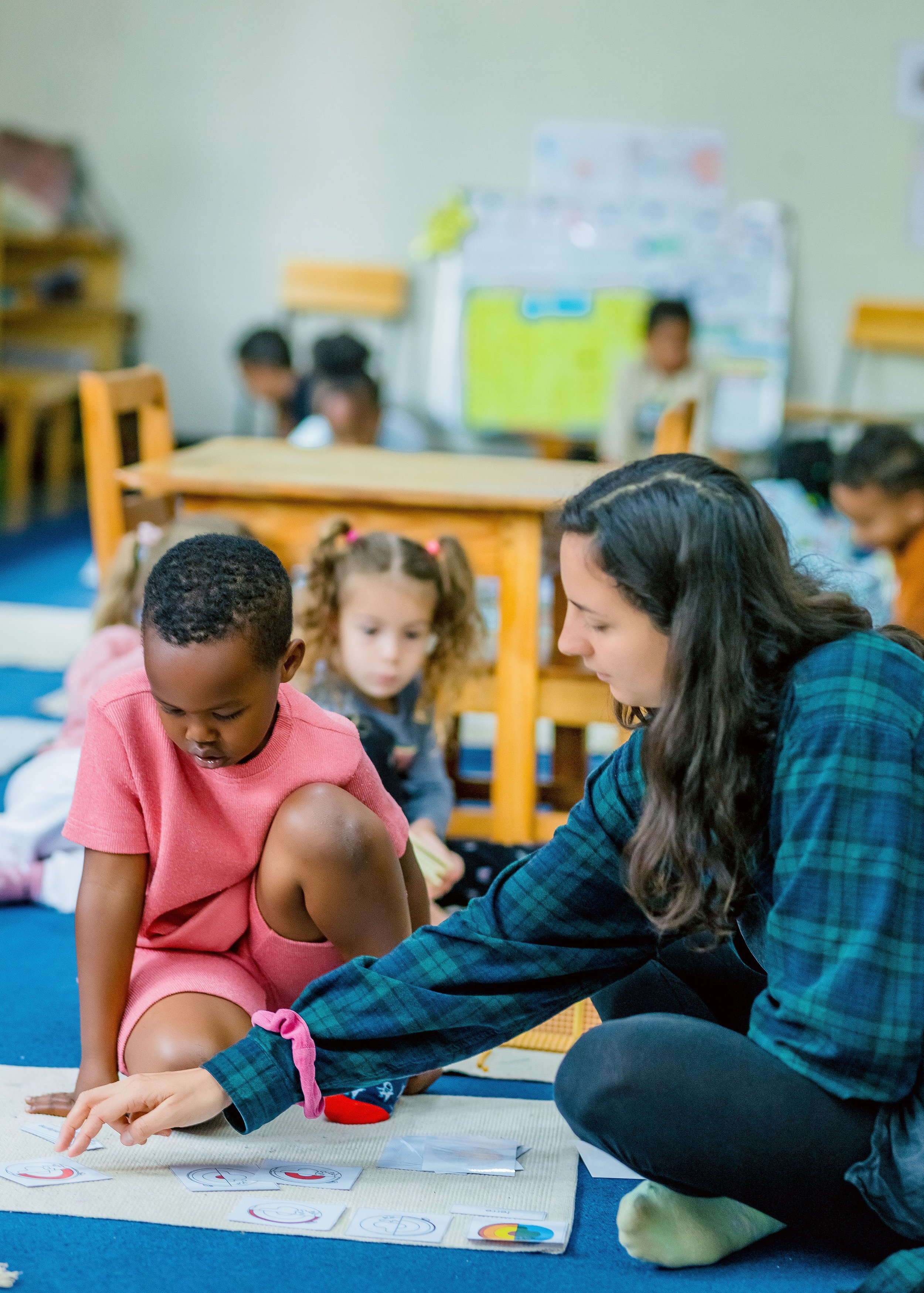
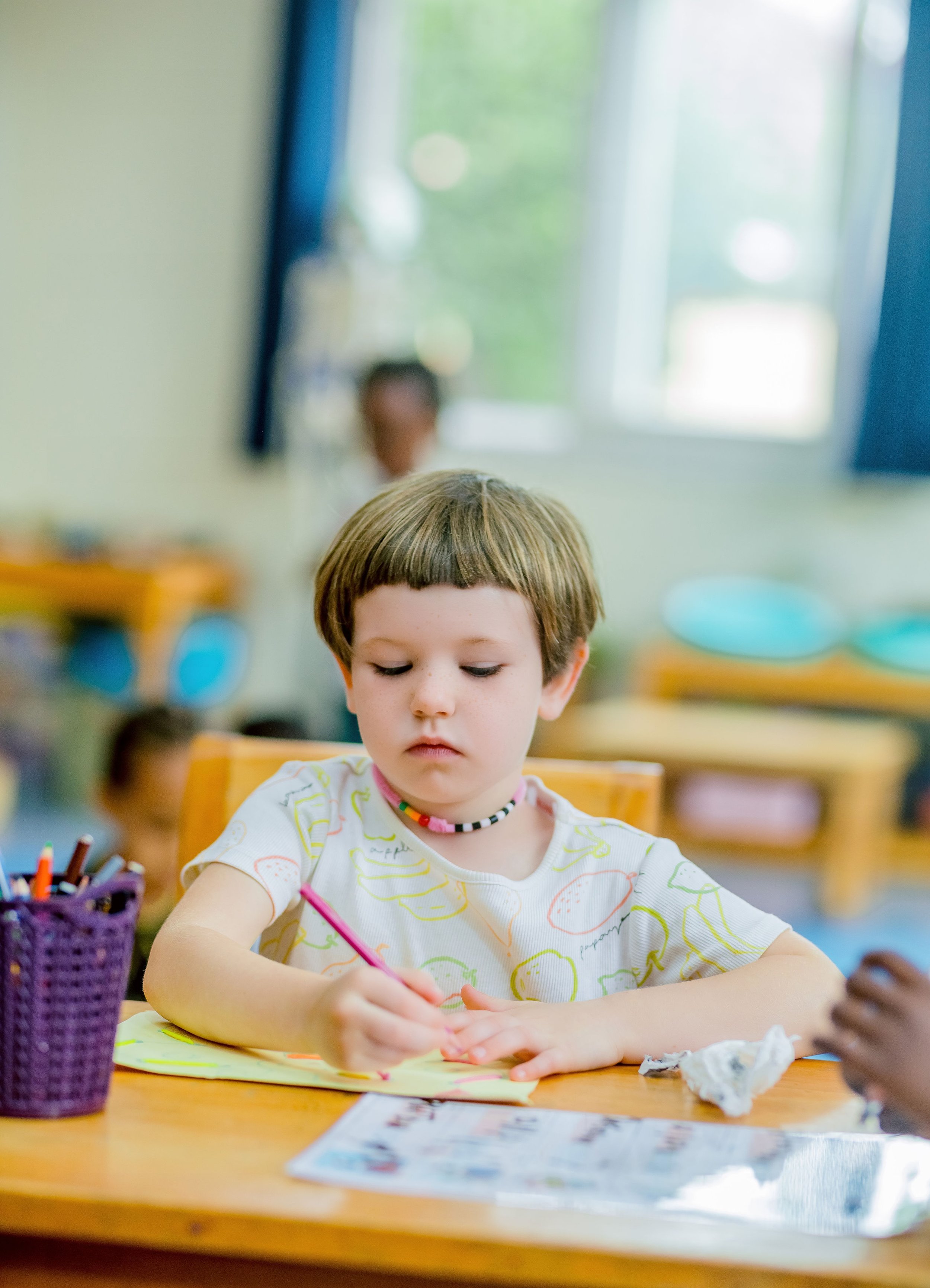
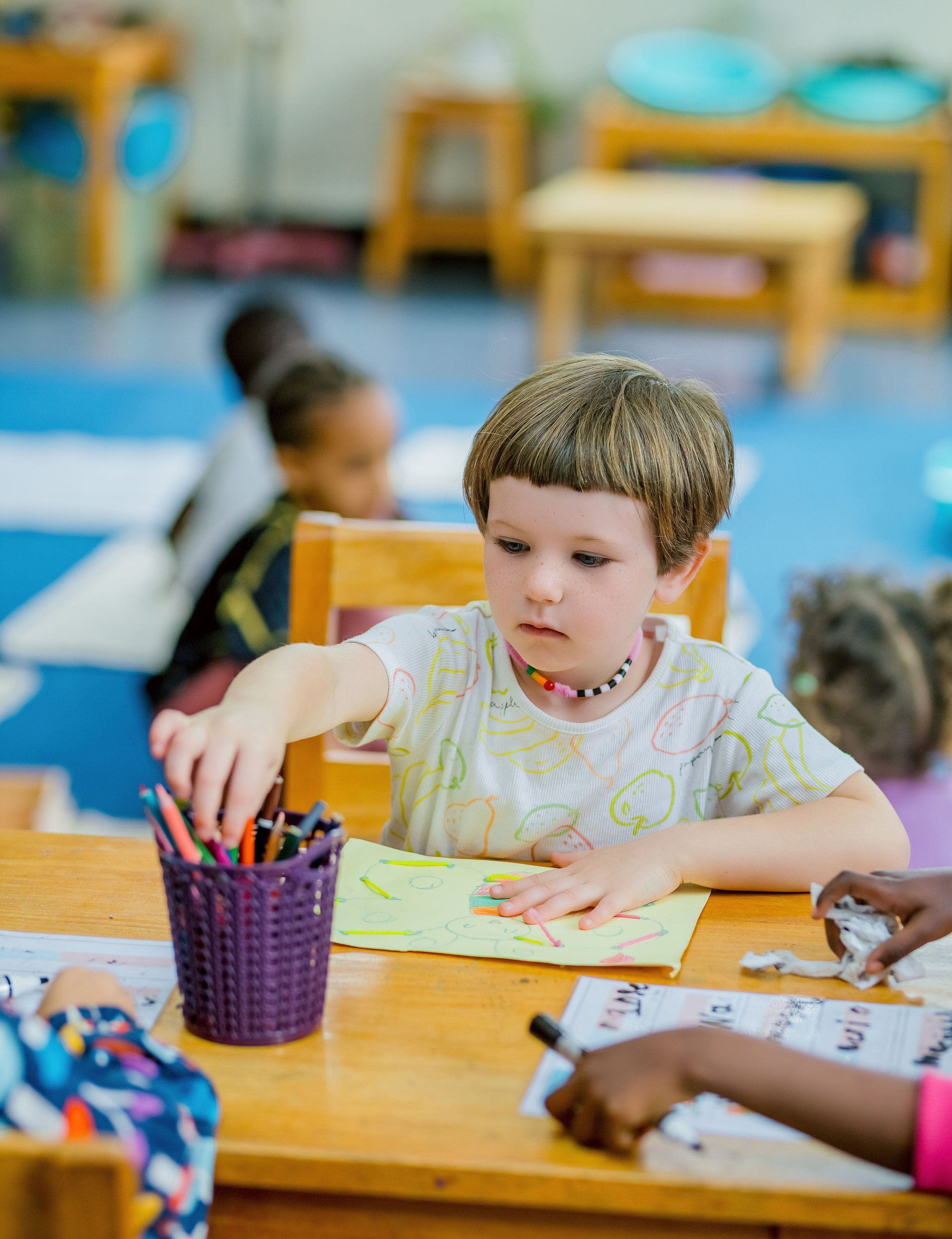
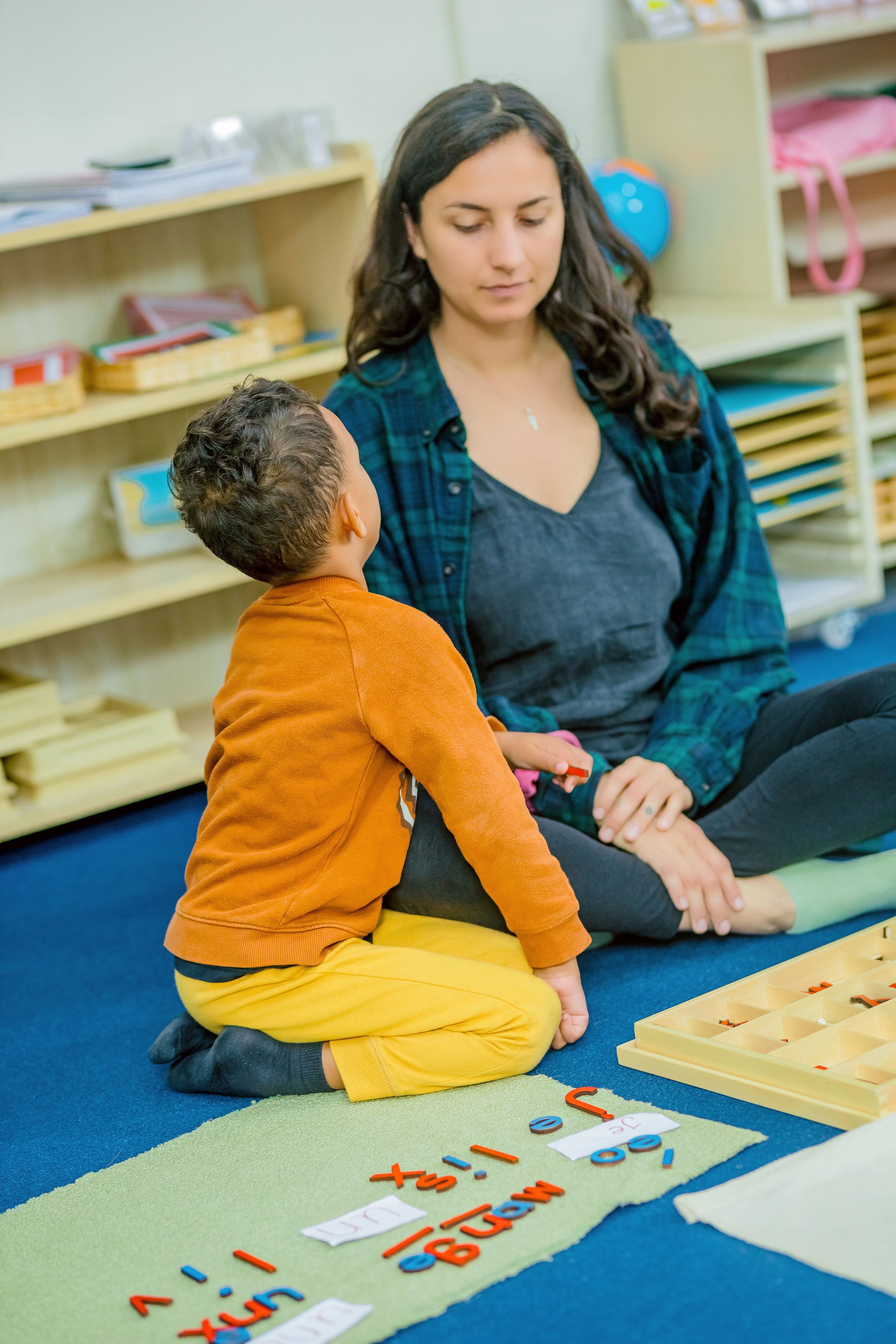
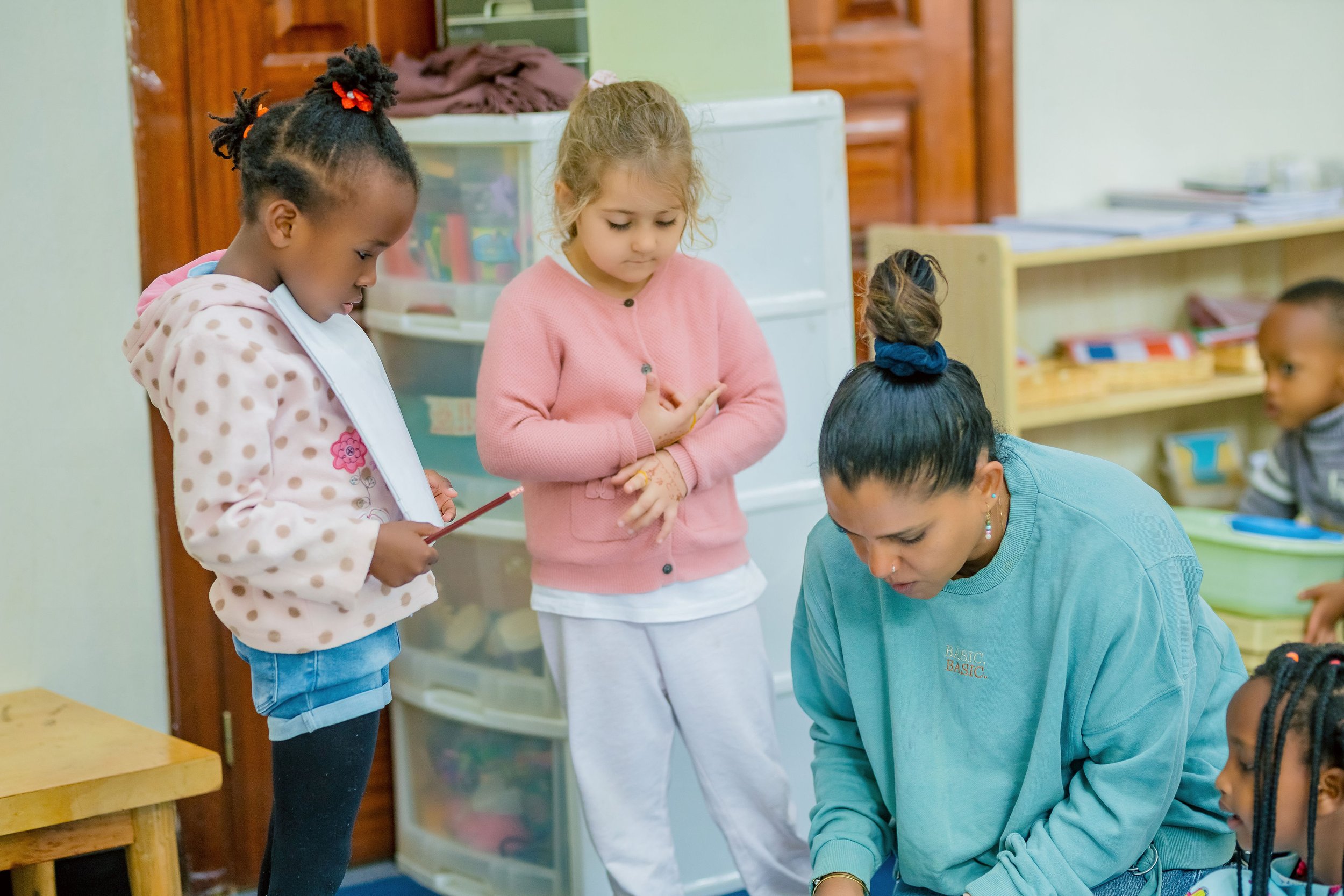
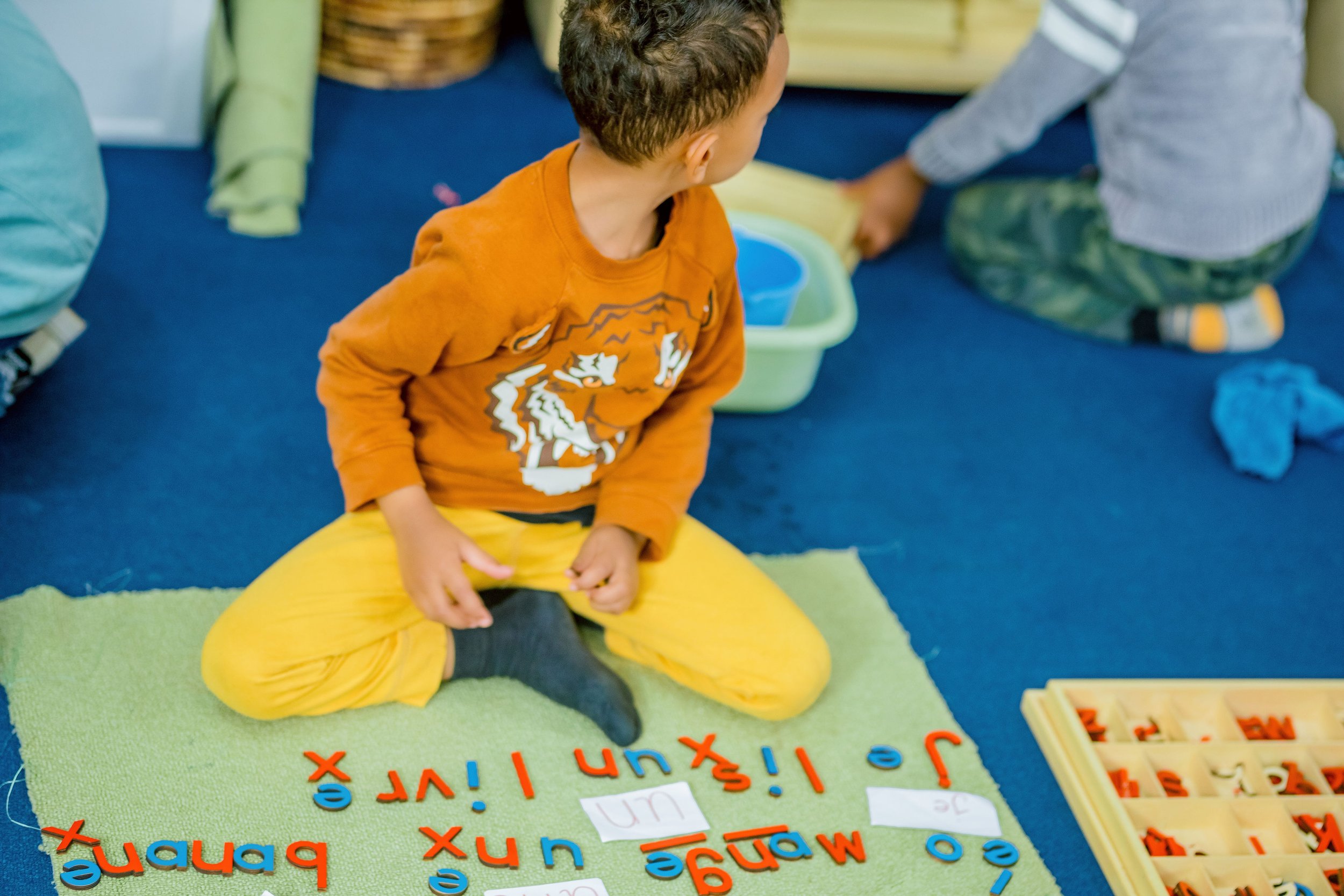

THE ELEMENTARY PROGRAM
Students age 6–12 years old cultivate their imagination and focus on intellectual independence, ethics, and social responsibility. We inspire academic excellence; nurture curiosity, creativity, and imagination; and awaken the human spirit.
Children learn in mixed-age classrooms: Lower Elementary (Grades 1–3) and Upper Elementary (Grades 4–6). We start each year off with the Great Lessons, exploring the origins of the world, sparking imagination, and creating a framework through which students learn core academic subjects.
What our learners master in the Elementary Program
-

Critical Thinking skills
In Elementary, students master the art of critical thinking. They develop the ability to analyze information, ask thoughtful questions, and approach challenges with a mindset that goes beyond rote memorization, fostering a deeper understanding of concepts.
-
Core Academic Skills
Through personalized learning paths, each child masters core academic skills in subjects like math, language arts, and science. This individualized approach ensures that learners progress at their own pace, building a strong foundation for future academic success.
-

Interdisciplinary Connections
The elementary classroom is a space where learners hone their skills in connecting different subjects. By engaging in interdisciplinary projects, they learn to see the interconnectedness of knowledge, fostering a holistic understanding of the world.
-

Learning How to Learn
At the Montessori elementary level, Montessori students learn to think for themselves. They are encouraged to do their own research, analyze what they have found, and come to their own conclusions. Rather than present students with all the “right answers,” Montessori teachers ask the “right questions,” and challenge them to find new solutions or discover the answers on their own.
Learning Design in the Elementary Program
Elementary Montessori students explore the realm of mathematics, science and technology, the world of myth, great literature, history, world geography, civics, economics, anthropology, and the basic organization of human societies. Their studies cover the basics found in traditional curricula, such as the memorization of math facts, spelling lessons, and the study of vocabulary, grammar, sentence analysis, creative and expository writing, and library research skills.
Mastery of Fundamental skills
Elementary Montessori students make their studies come alive through a host of hands-on projects and activities. For example, a small group of students who are interested in Greek mythology might build a model of ancient Athens, make and decorate their own Grecian vases to illustrate a particular story, prepare dioramas of a scene from mythology, or write and produce their own play for the rest of the class.
Learning by Doing
The Great Lessons are five key areas of interconnected studies traditionally presented to all elementary Montessori students in the form of inspiring stories and related experiences and research projects. The Cosmic Curriculum: The Great Lessons include the story of how the world came to be, the development of life on the Earth, the story of humankind, the development of language and writing, and the development of mathematics. They are intended to give children a “cosmic” perspective of the Earth and humanity’s (and their own) place within the cosmos. Traditionally presented every year in the elementary class as an inspiration to new and older students alike, the lessons, studies, and projects surrounding each of the Great Lessons normally span many months and the questions that the children pose and their efforts to find the answers to their own questions may continue for many years.
Dr. Montessori’s “Great Lessons”
Elementary students are encouraged to explore topics that capture their imagination. Most former Montessori students look back on this aspect of the elementary program with particular fondness in later years. Montessori is a library research-based curriculum. Elementary Montessori students rarely use textbooks. The approach is largely based on library research, with children gathering information, assembling reports, teaching what they have learned to their fellows, and assembling portfolios and handmade books of their own. Beginning by simply using an encyclopedia to find the answers to a list of questions prepared by their teachers, Montessori students are taught how to use reference materials, libraries, and even the Internet to gather information and uncover the facts. Their oral presentations and written research reports grow in sophistication and complexity every year.
Individually chosen research
Elementary Curriculum
-
The mathematics curriculum introduces mathematics concepts, number theory, and computation through the use of Montessori materials. Hands-on learning makes abstract concepts clear and concrete. Materials proceed through several levels of abstraction until the student grasps them conceptually. The Great Lesson "The Story of Numbers" familiarizes students with the history of numbers, its importance and influence in the evolution of civilization, and its place as the foundation for the mathematical and geometrical systems used today.
-
All aspects of language are integrated into all areas of the curriculum. In the lower elementary classroom, the focus is on reading fluency, writing, and oral expression. The Great Lesson "The Story of Language" familiarizes students with the history of symbolic language, its importance in the evolution of civilization, and its use as a means of communication. At the upper elementary level, the study of language builds on reading fluency and foundational writing skills and expands to the comprehension of texts. Written expression is a continued emphasis.
-
Montessori’s Cosmic Education fuses the study of geological history, physical geography, and earth/natural sciences. Lessons satisfy the child’s need to understand relationships, cause/effect, associations, and morality while utilizing the imagination and sparking curiosity and interest.
Based on hands-on inquiry, the focus is on scientific language and principles. Students spend more time focused on the details of the natural world as well as the processes and issues of science: the study of life, laws, and structure of the universe, and how humanity has struggled throughout history to put our understanding to practical use. Students explore science through lessons, demonstrations, experiences, experiments, and independent research.
-
The study of geography has two basic aims. The first is to help children develop a clear sense of spatial orientation, and the second is to become aware of and accepting of other cultures. Geography is introduced through oral lessons with tactile materials to allow repetition. In Montessori education, we begin with the big picture and gradually move to details like the names of rivers and mountains. The framework is based upon our relationship to the earth and how humans meet their basic needs under varying conditions.
History is shared through stories based on the contributions of all of humanity. Students receive lessons on the concept and passage of time, as well as how it relates to the earth and the different cultures living on it. The children start with how the world began and cooled, the formation of the atmosphere and oceans, and the emergence of life. Lessons satisfy the child’s need to understand relationships, cause/effect, associations, and morality while utilizing the imagination and sparking curiosity and interest.
Students are in an intellectual period for reason; they are concerned with the role of society, morality, and social interaction. They are still sensitive to the use of the imagination, but maturity results in more advanced thinking, research, and interest. Geography is tied to both the history and science curricula and serves as a bridge to the development of the child’s understanding and appreciation of the story of humankind and nature.
-
The purposeful work of practical life helps children develop and refine a strong and realistic sense of independence and self-reliance. Activities at this level focus on care of self, care of the environment and living things, cooperation, and continued practice of grace and courtesy. Activities become experiences and exposure that allow them to learn to navigate and respond effectively in life. Students feel a greater sensitivity to their surroundings, so activities begin to take the children outside of the classroom
How our learners will grow in the Elementary program
-

Critical Thinkers
In the elementary program, students will cultivate sharp critical thinking skills. Through engaging projects, intellectual challenges, and real-world problem-solving, they’ll learn to approach challenges with curiosity and creativity.
-
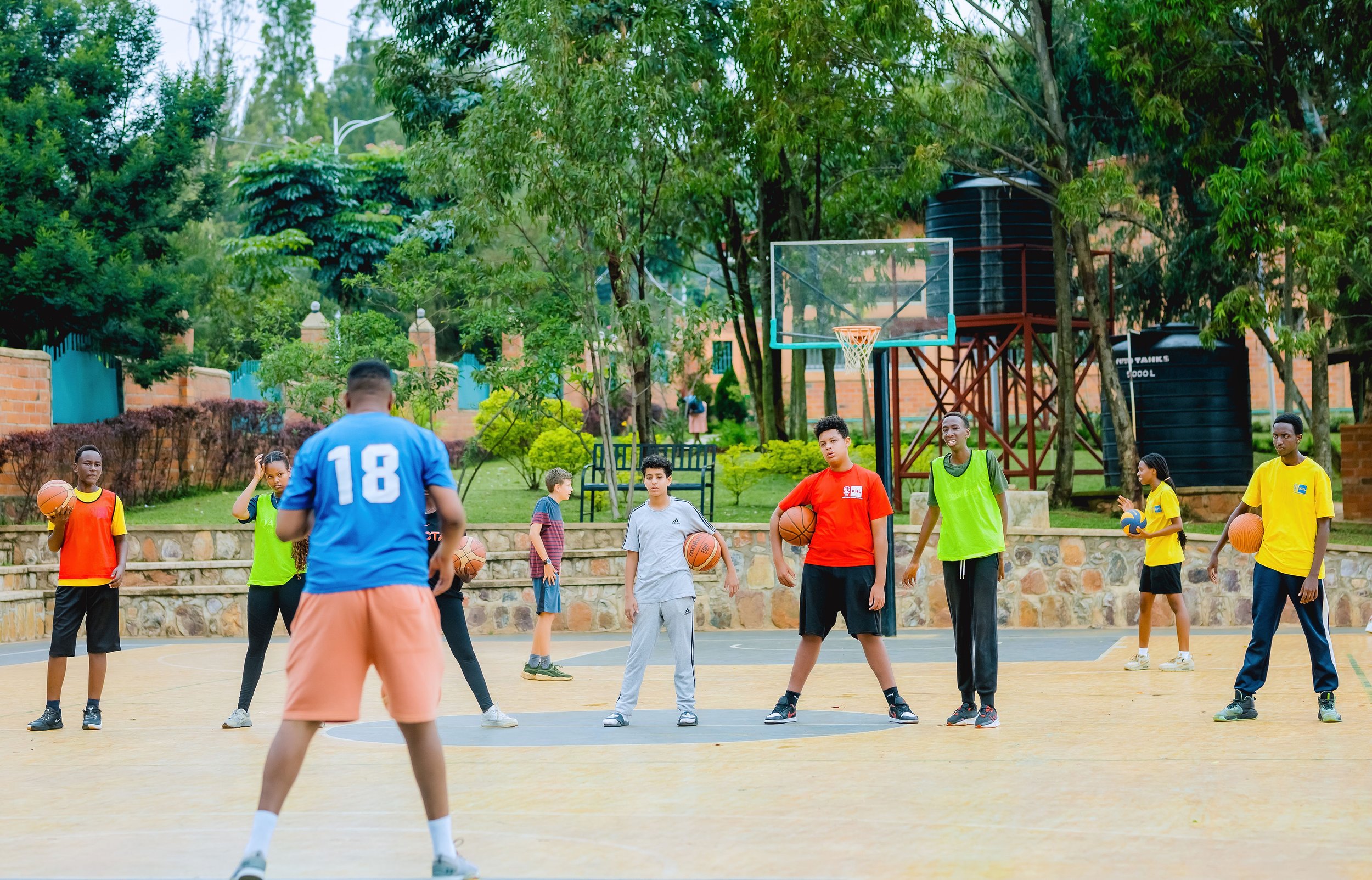
Independent Learners
The Montessori philosophy empowers learners to guide their educational journey. Without the constraints of traditional schooling, children become independent thinners, taking ownership of their learning and developing self-motivation.
-
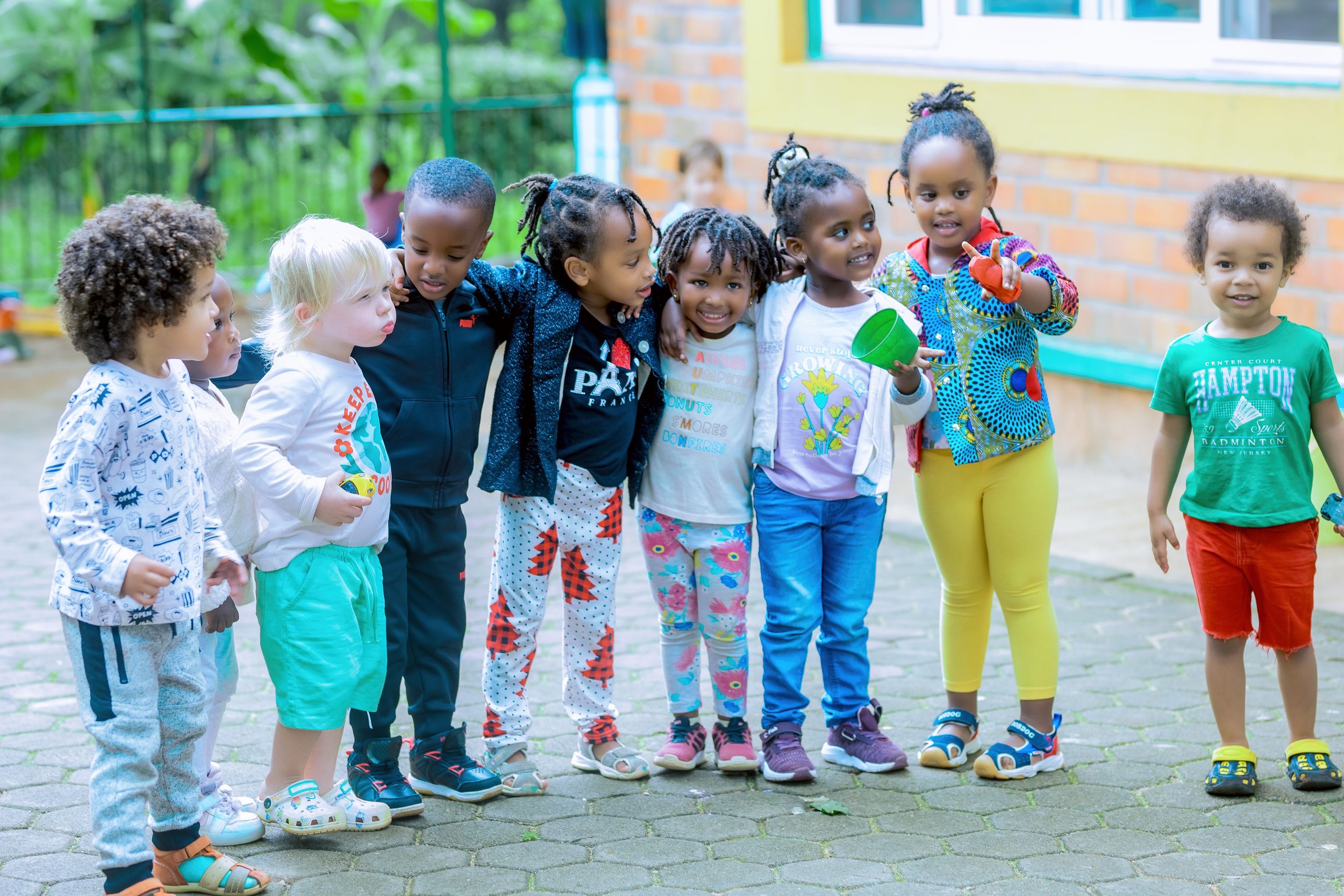
Versatile problem solvers
Project-based learning equips students with the ability to tackle real-world issues. By working on diverse challenges, they gain the skills needed to solve problems effectively, fostering adaptability and versatility.
-
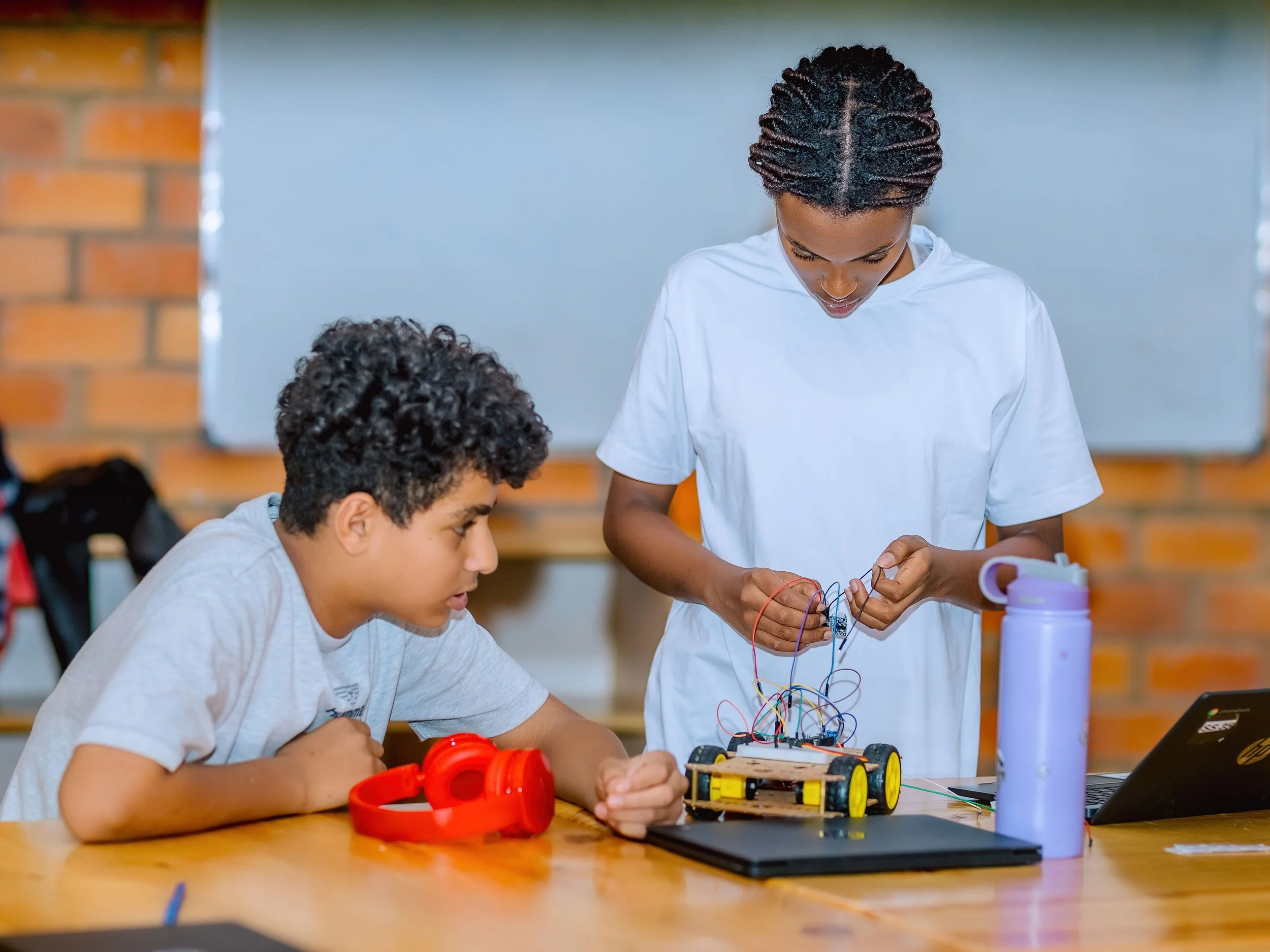
Effective Communicators
Communication is a core focus in the Montessori classroom. Whether through written, oral, or reading skills, learners practice and master communication techniques. This proficiency not only aids academic success but also sets them up for success in their future endeavors.
Our Programs
-

Toddler Community (18 months – 3 years)
Gentle introduction to community, sensory play, routine
-
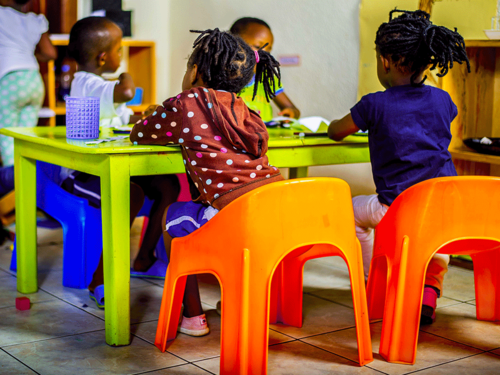
Early Childhood (3–6 years)
Montessori-inspired learning, independence, practical life, phonics, numeracy
-
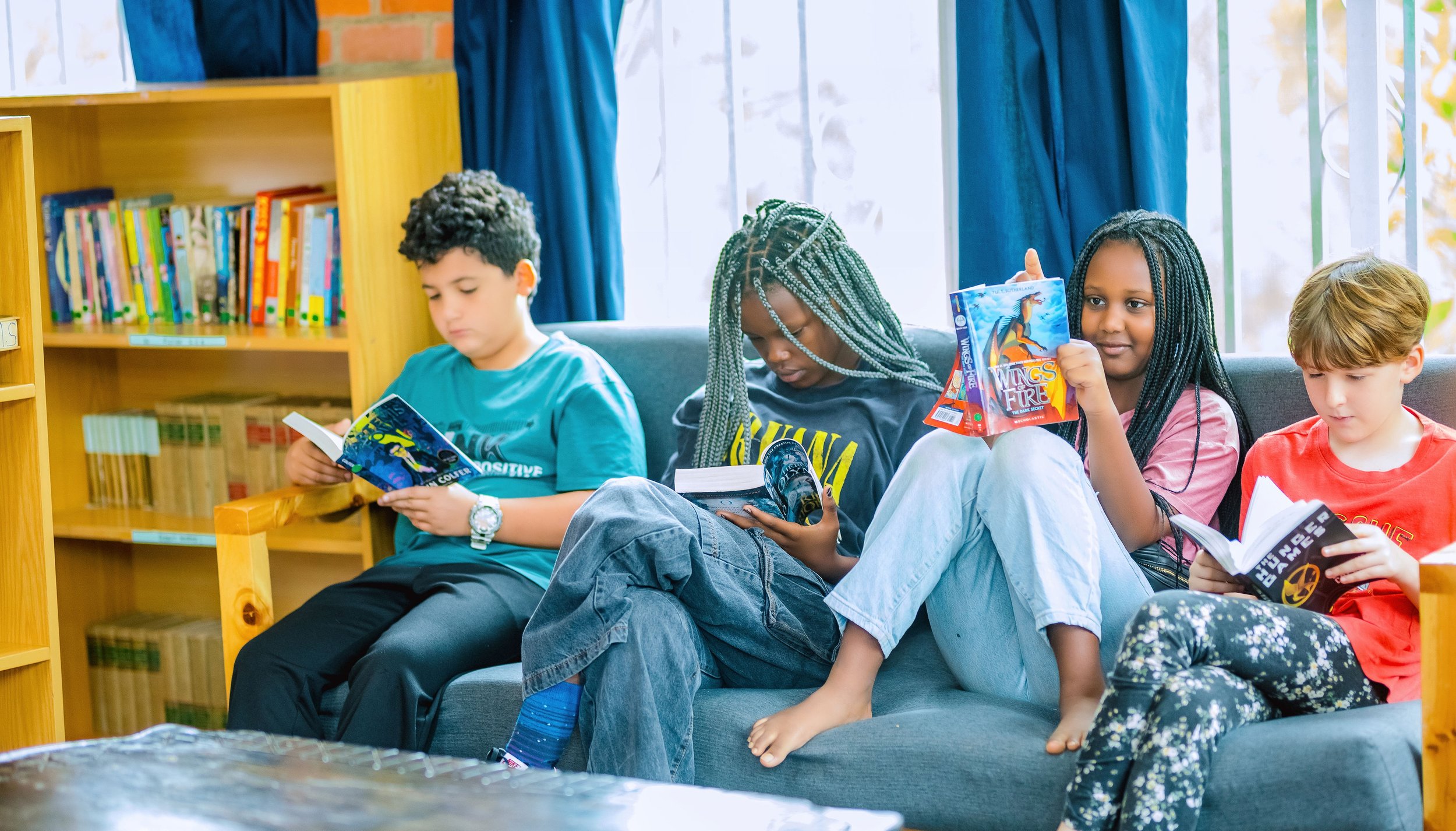
Elementary (Grades 1–6 years)
Project-based learning, interdisciplinary units, strong academic foundation with creativity
-
Secondary (Grades 7–10 years)
Deep academic engagement, mentorship, career exploration, global citizenship
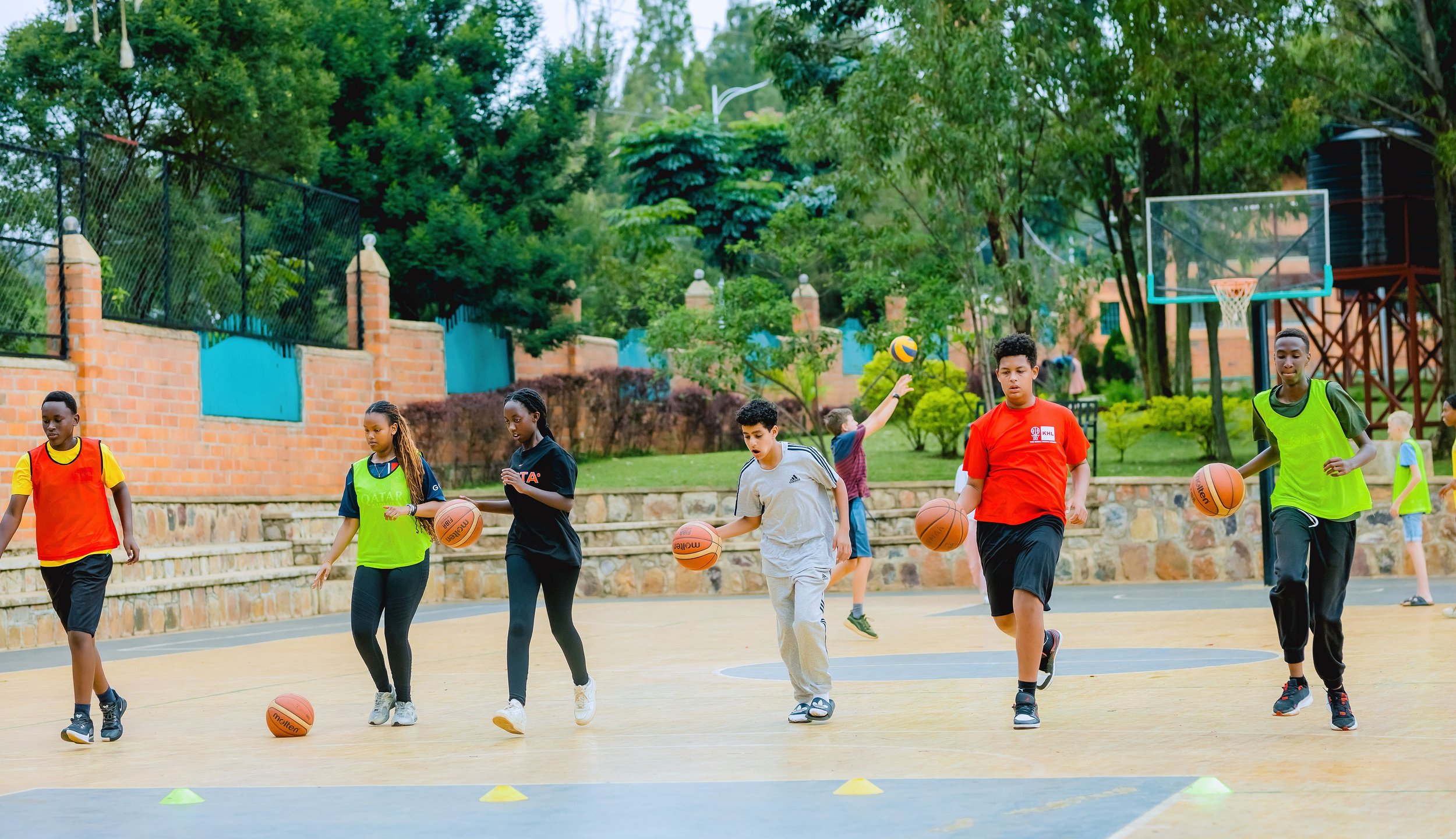
We make a Difference
Each DIMS student follows a unique and powerful journey—whether through academics, service-learning, environmental advocacy, or athletic achievements.

